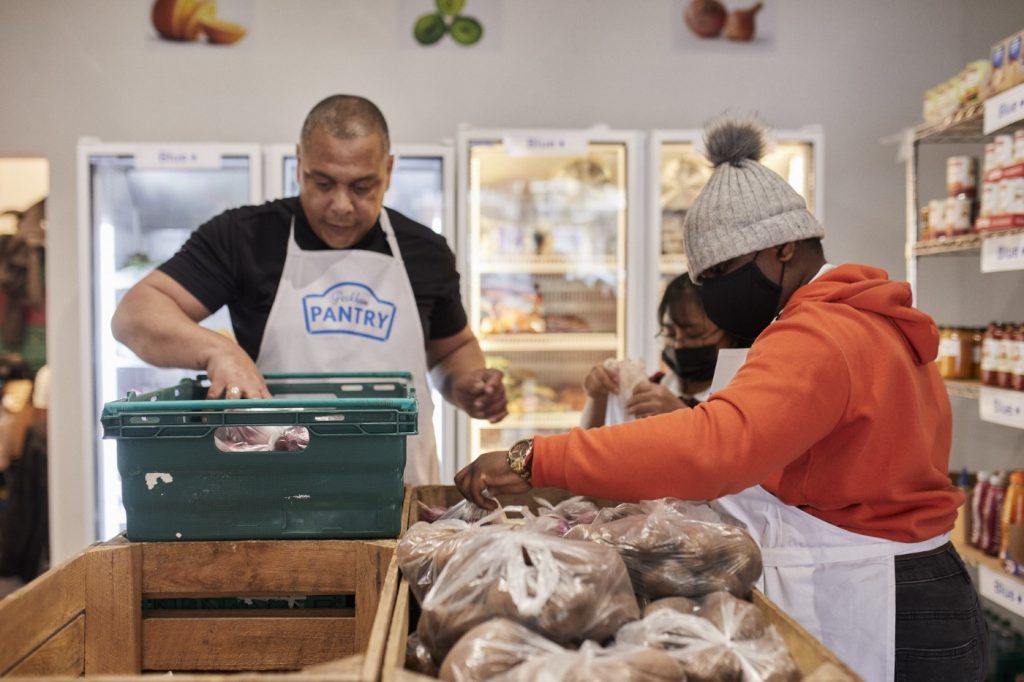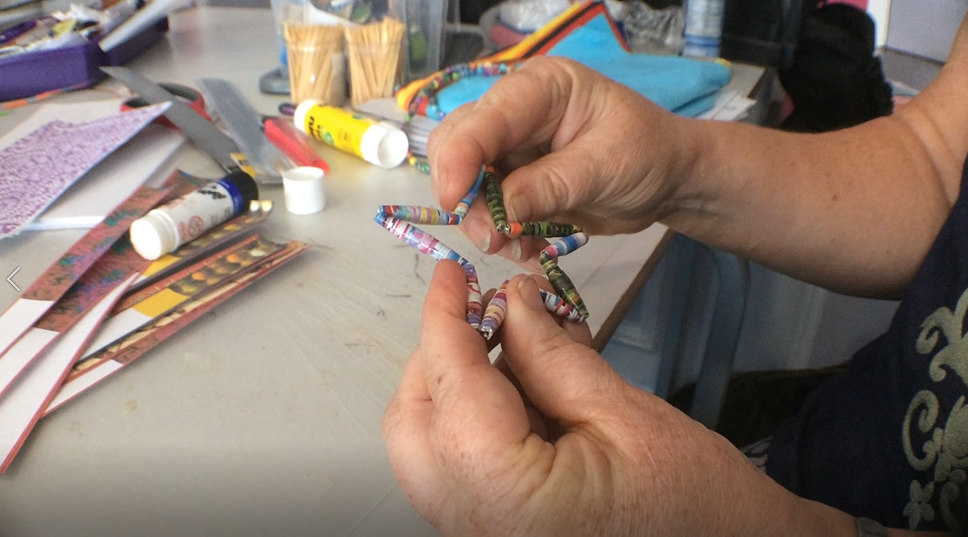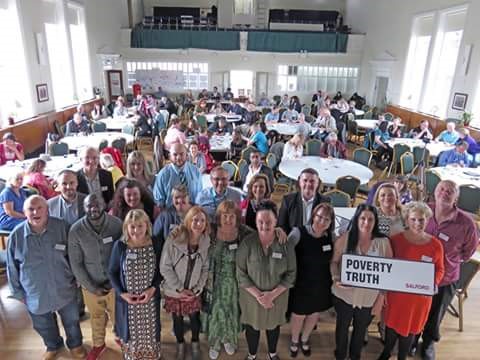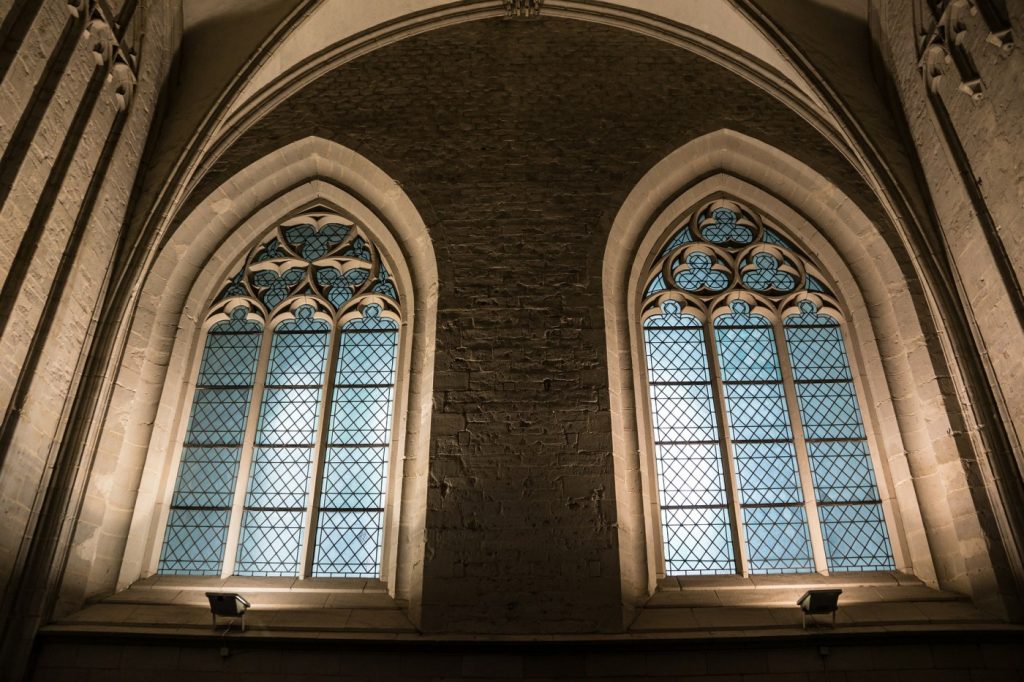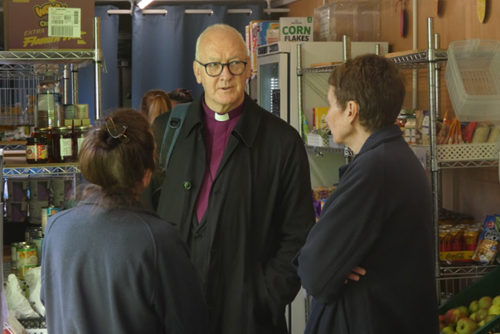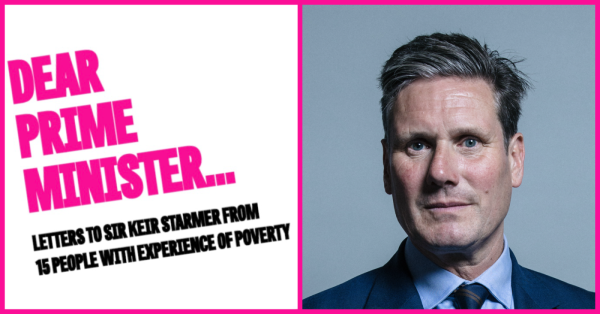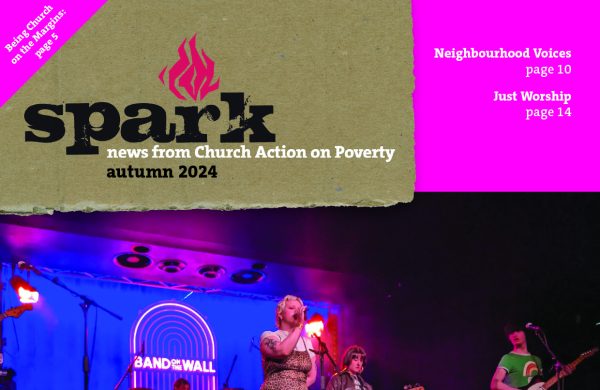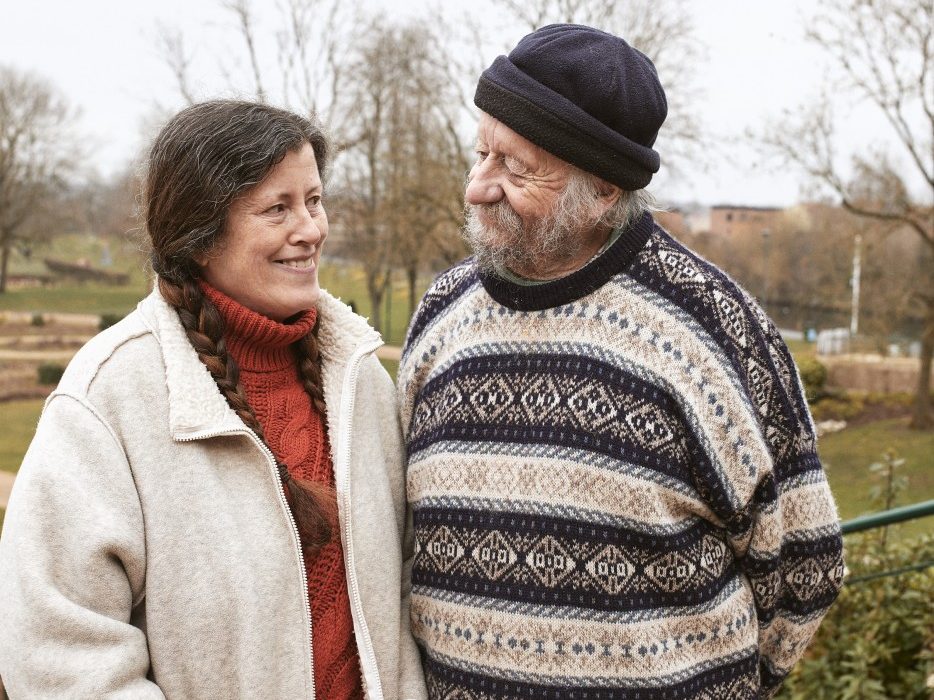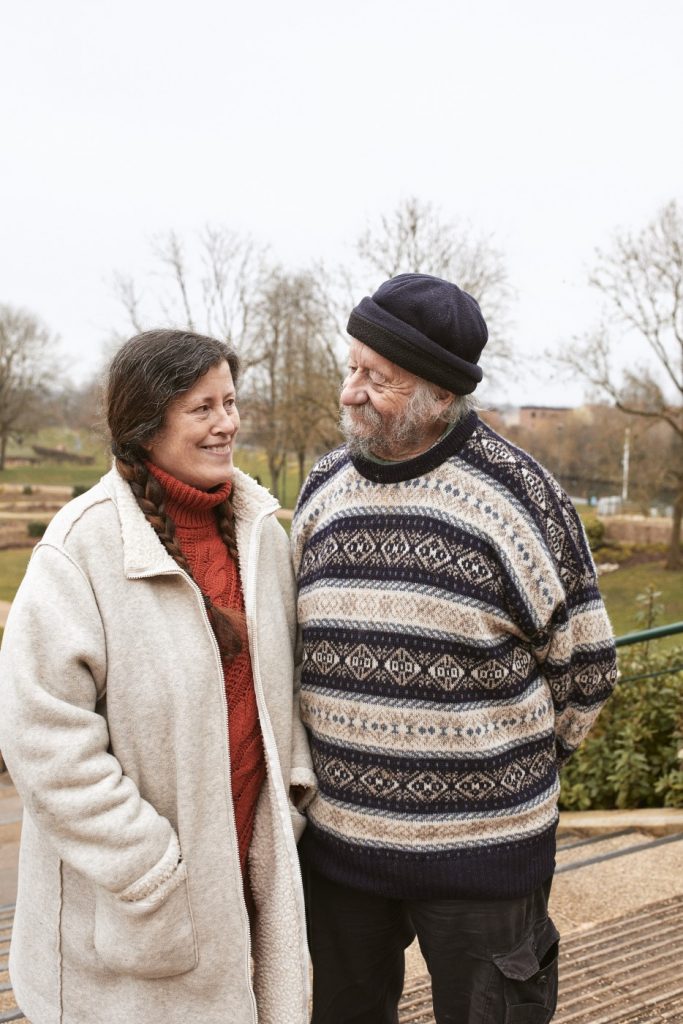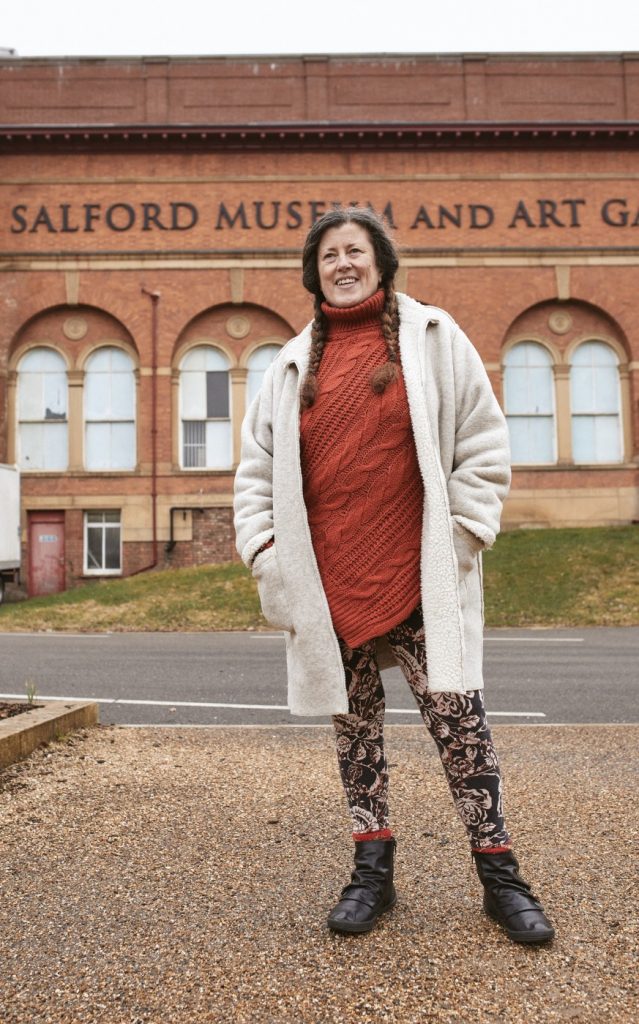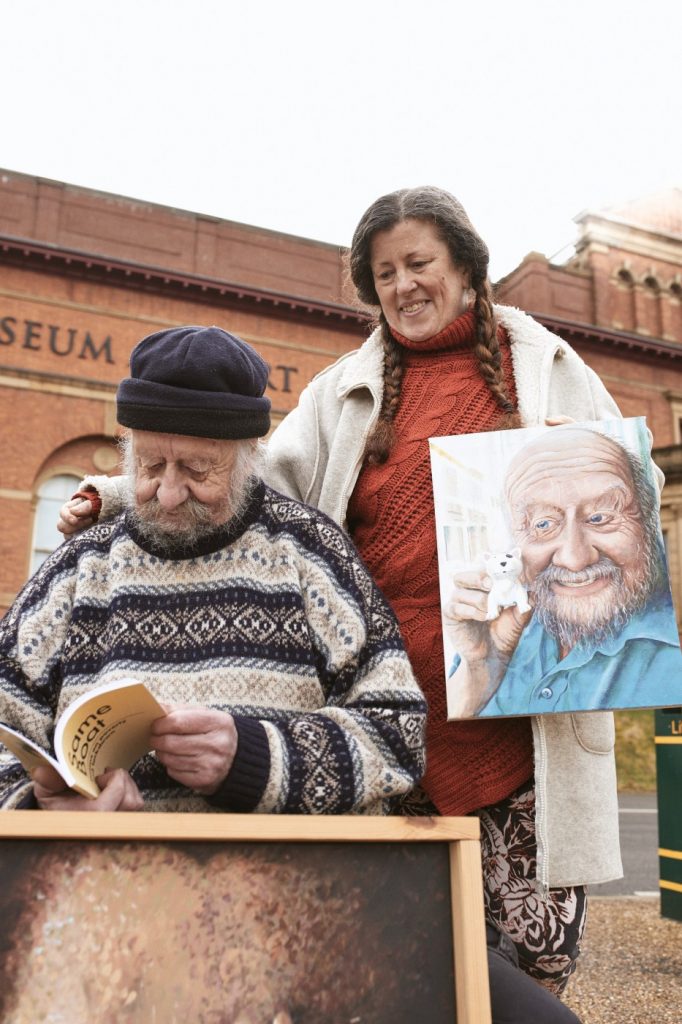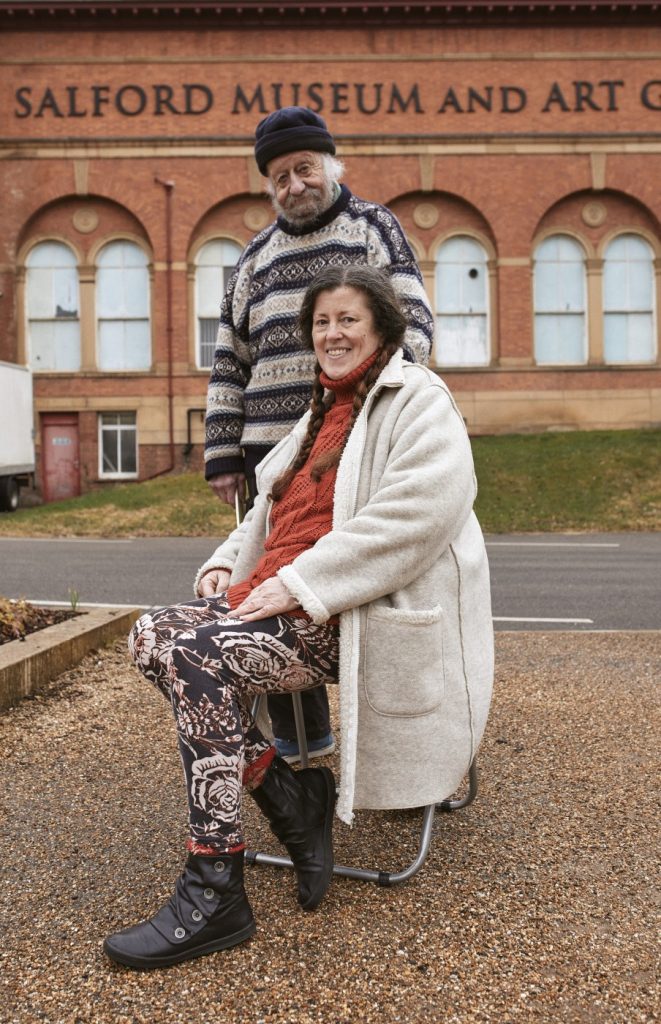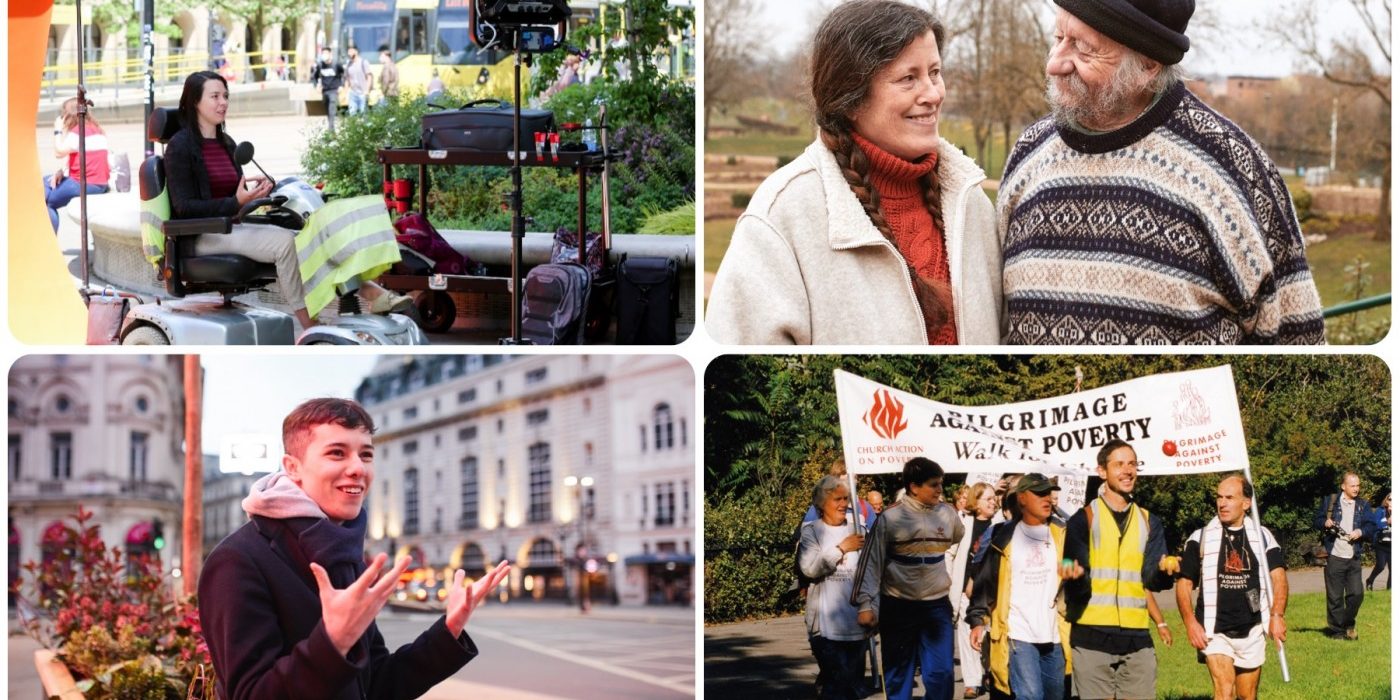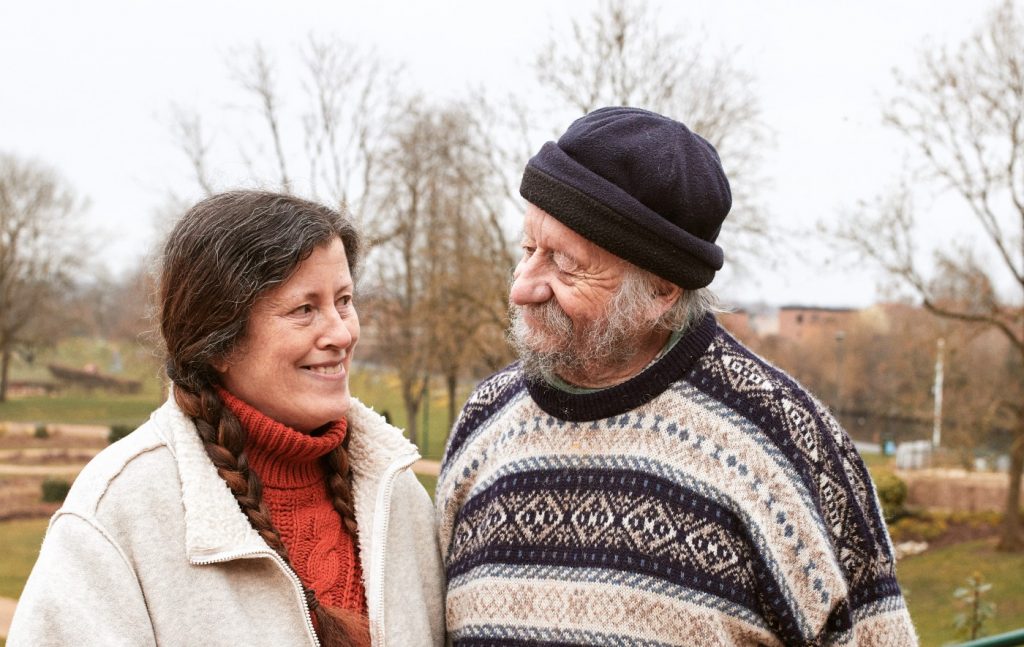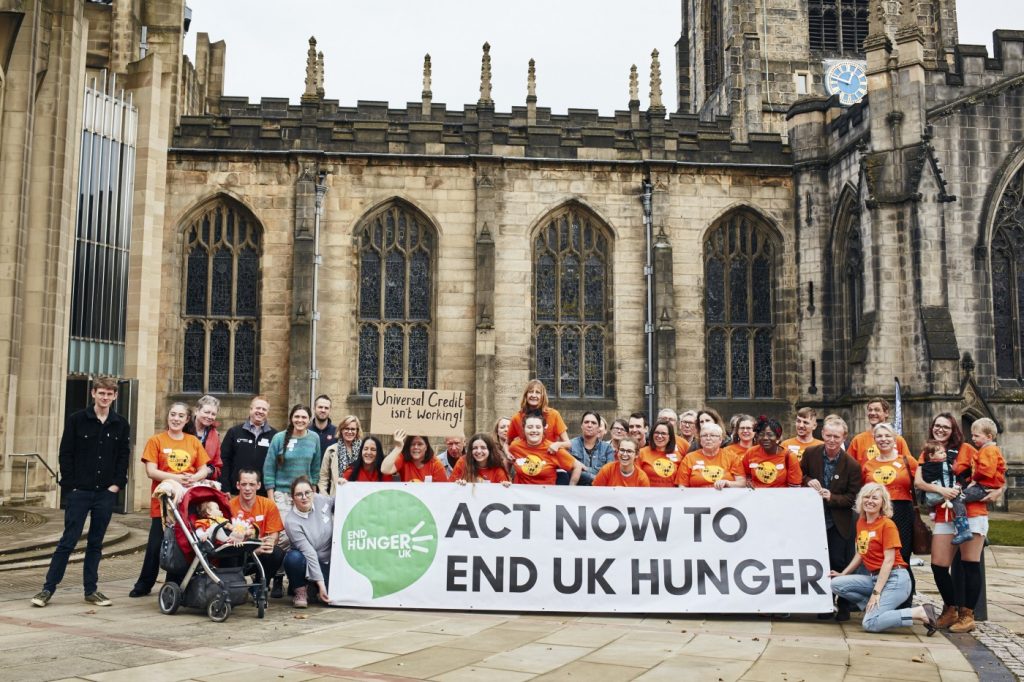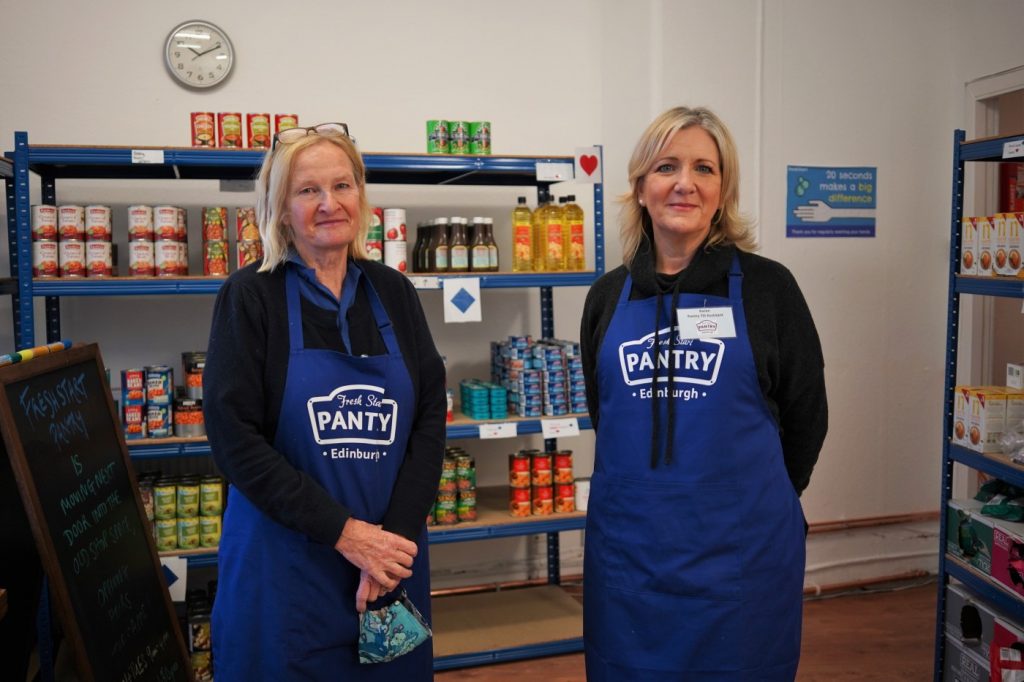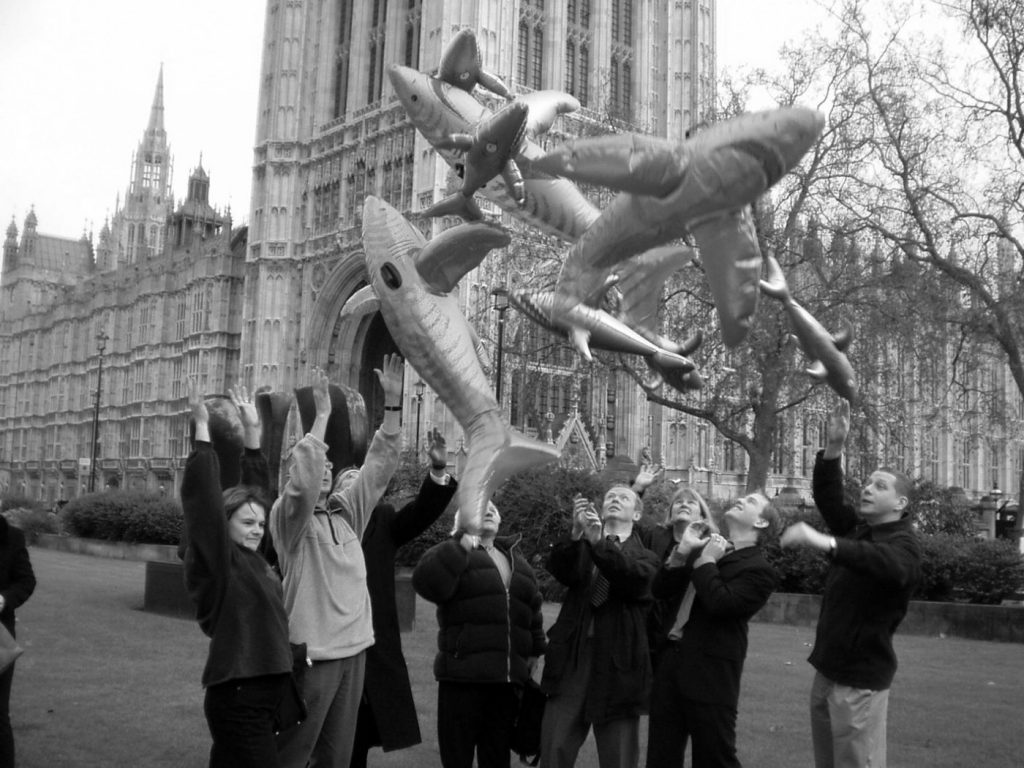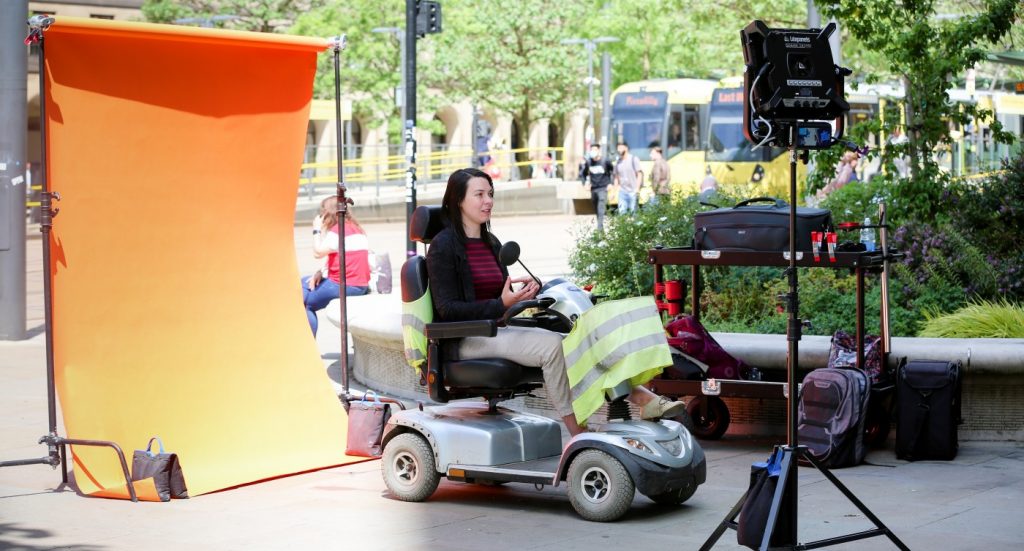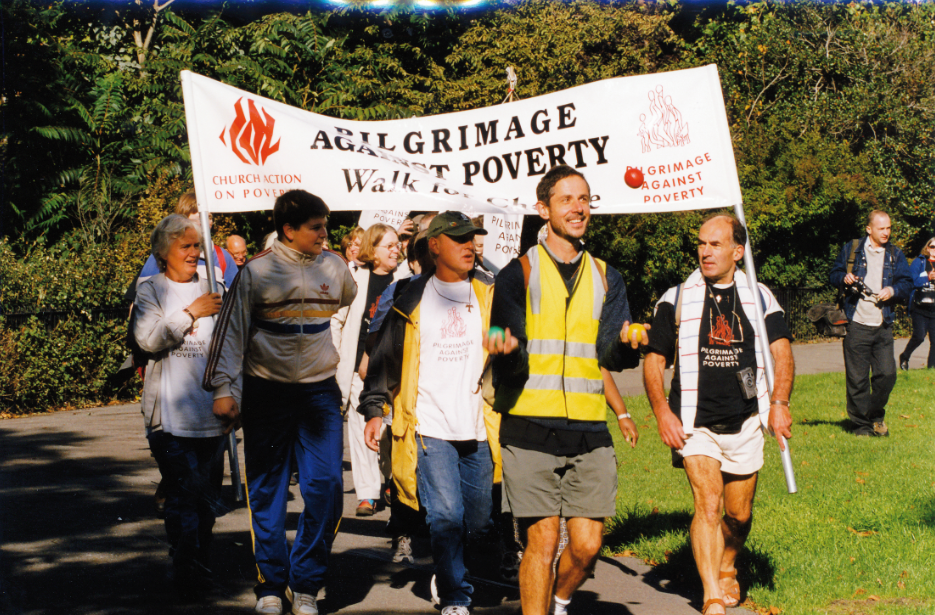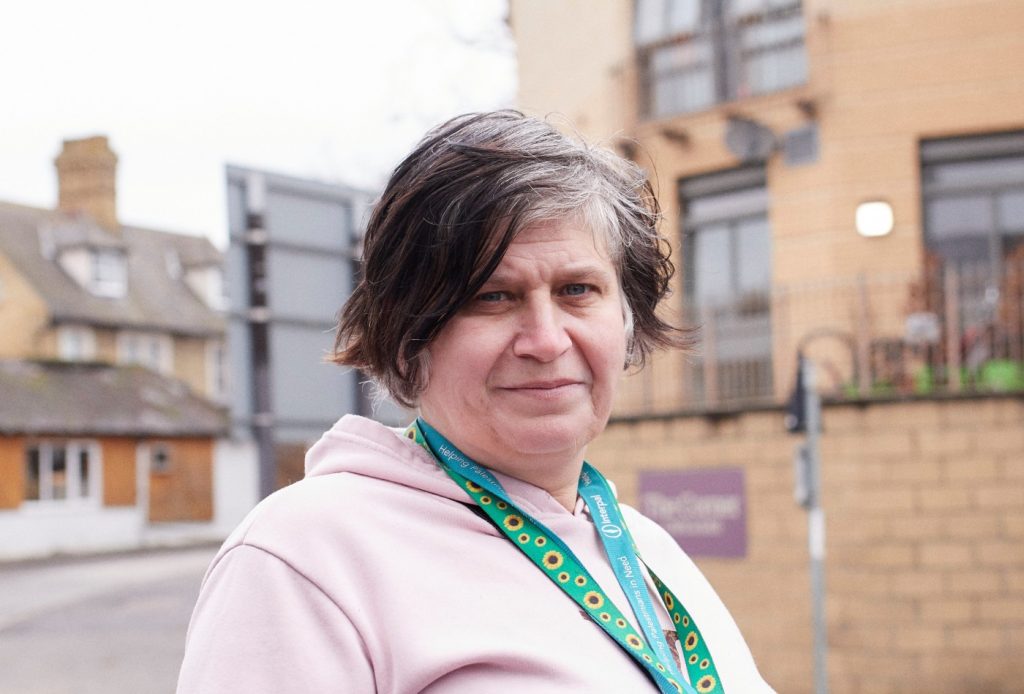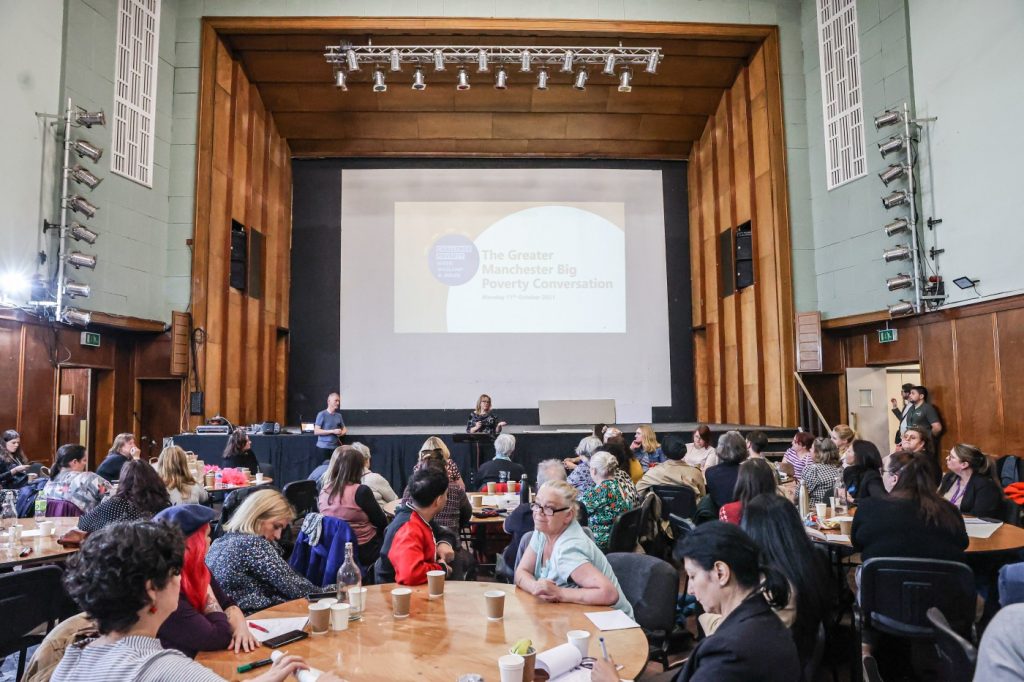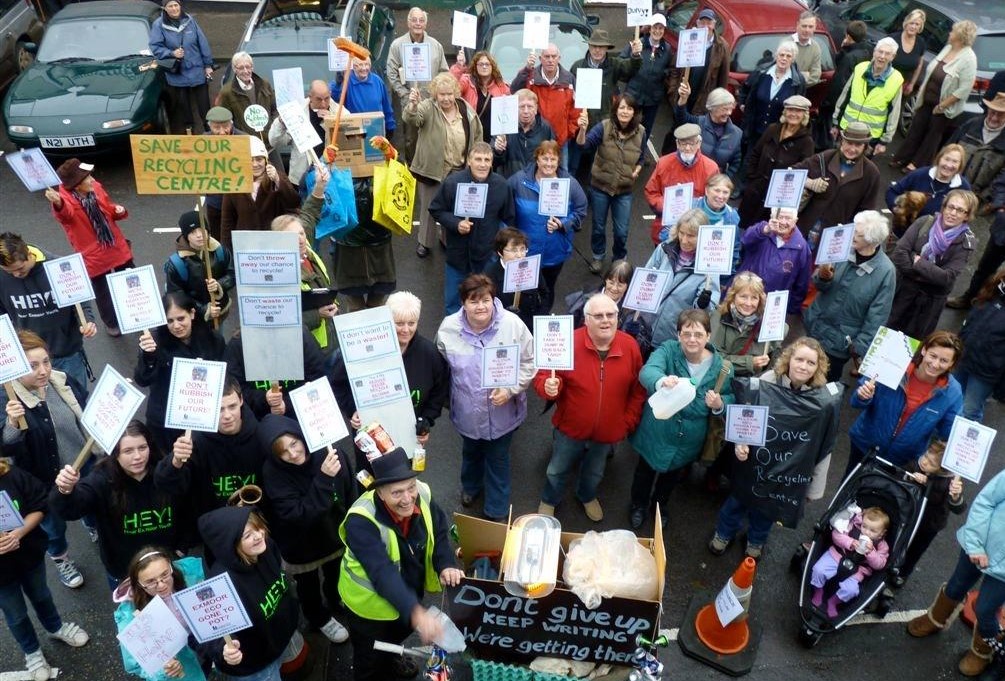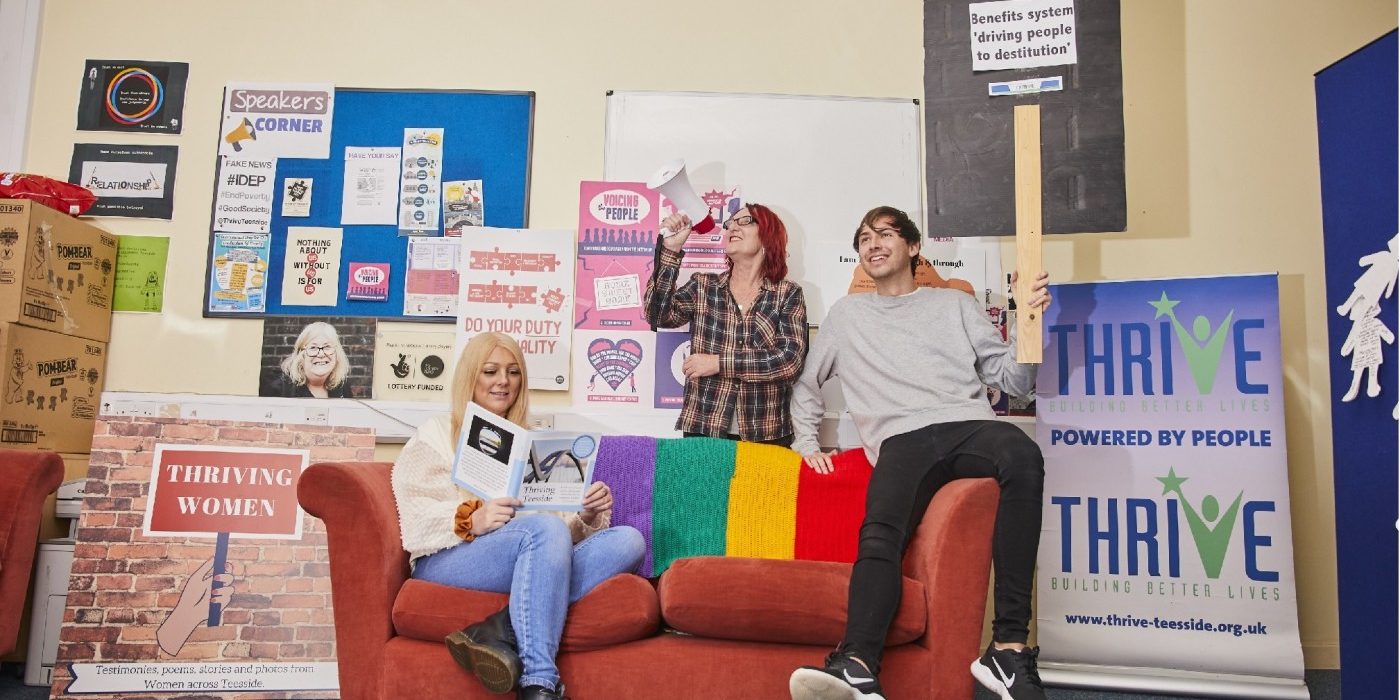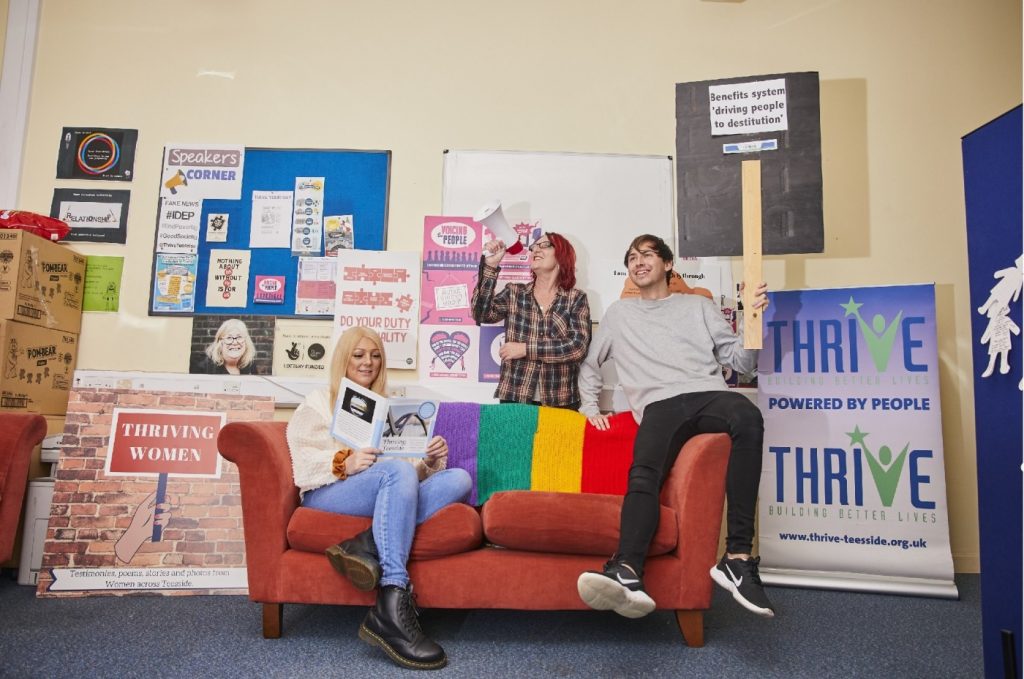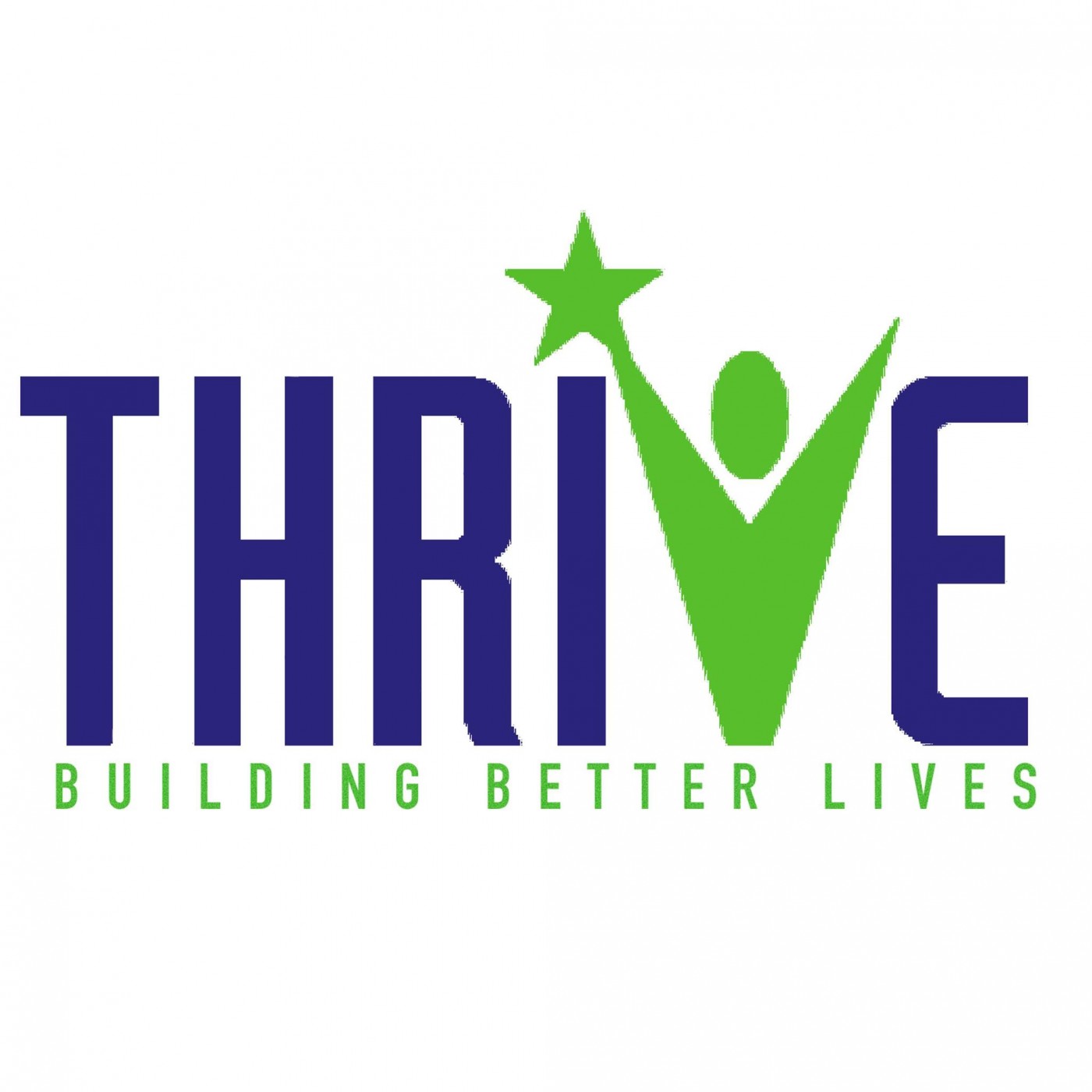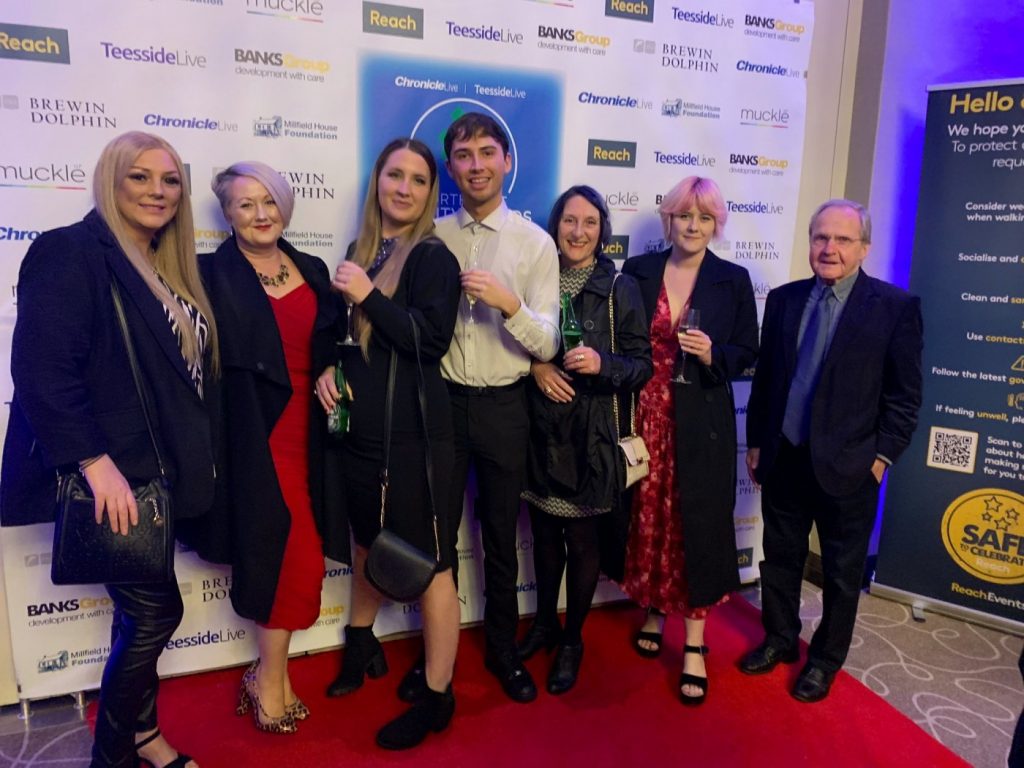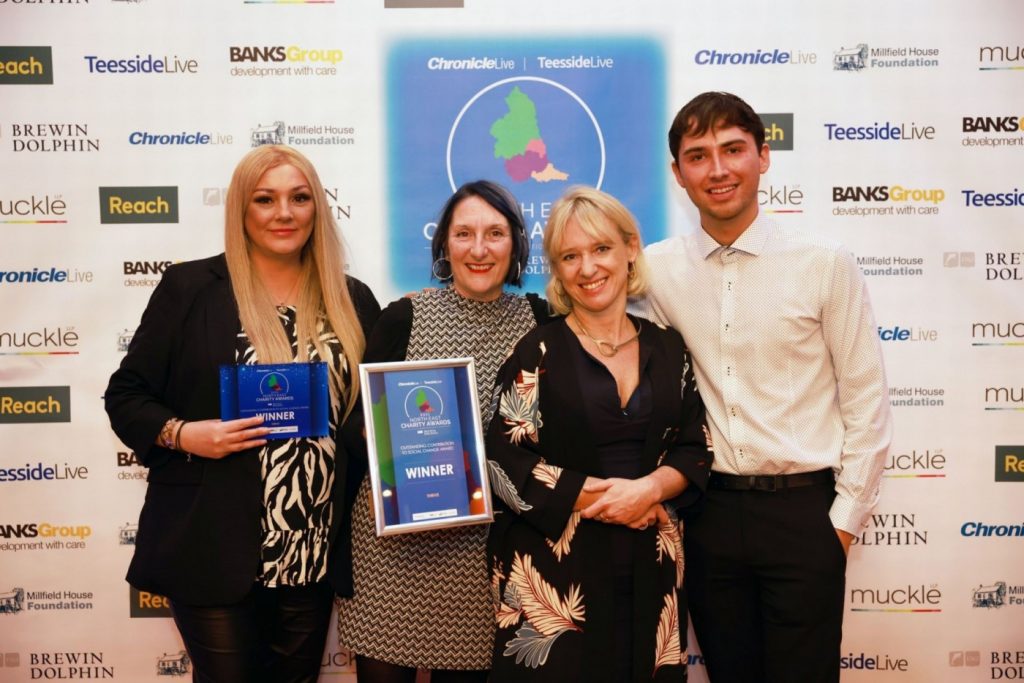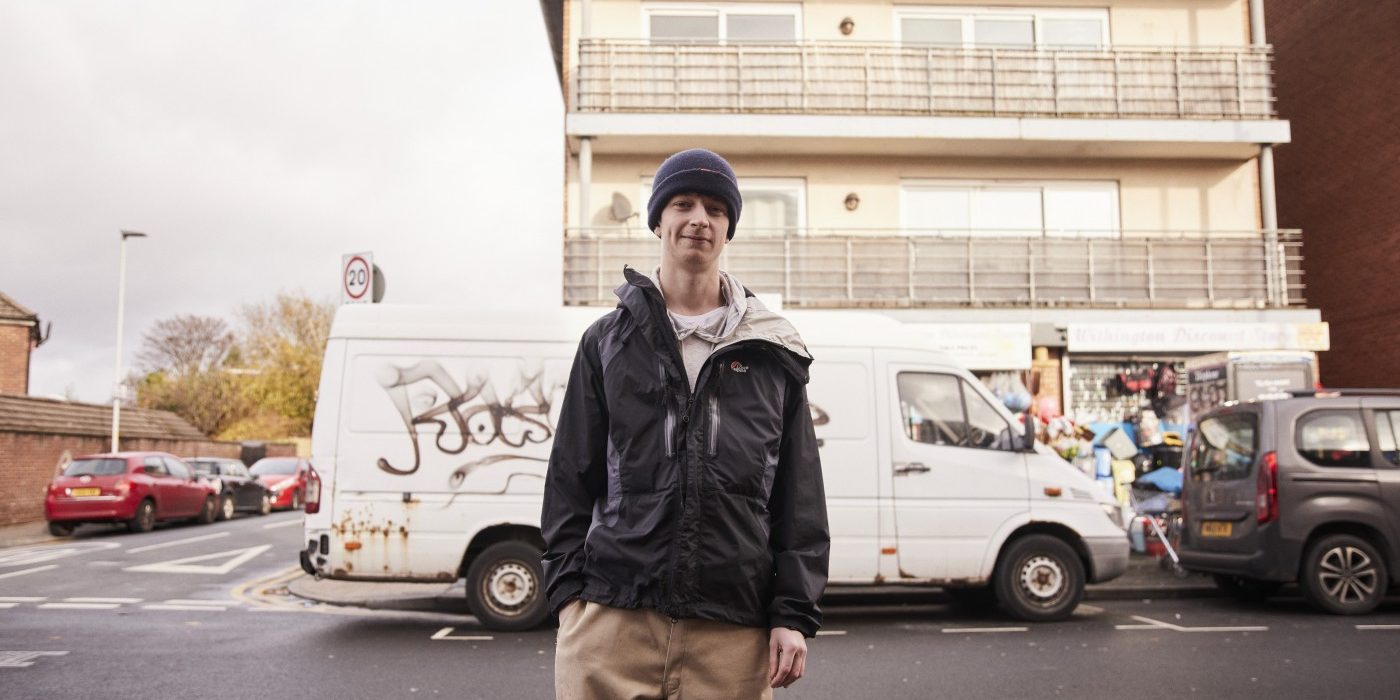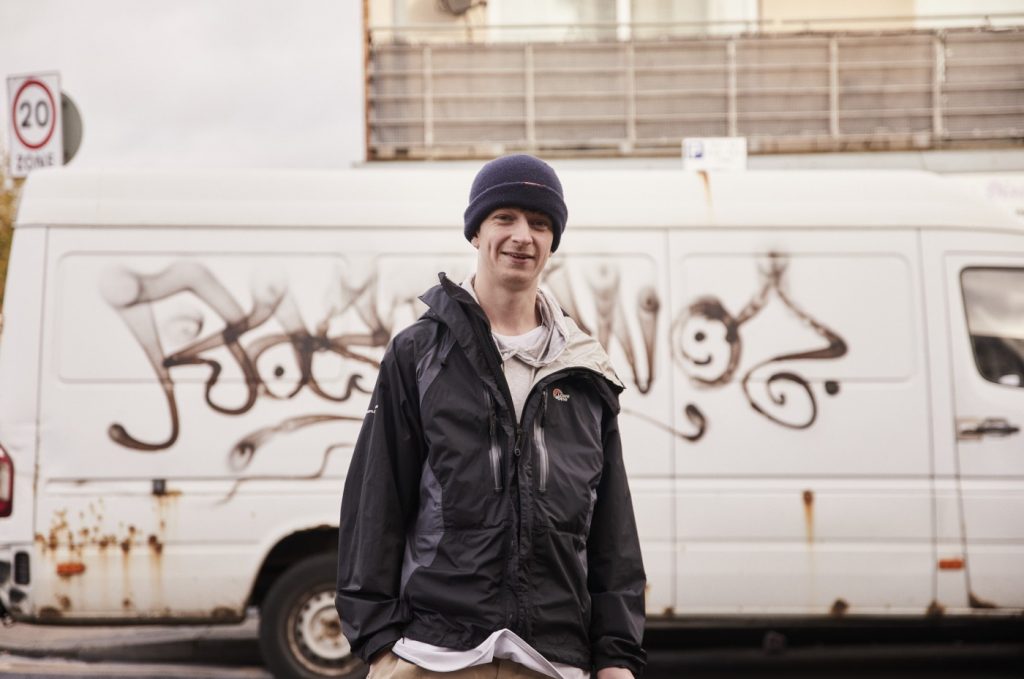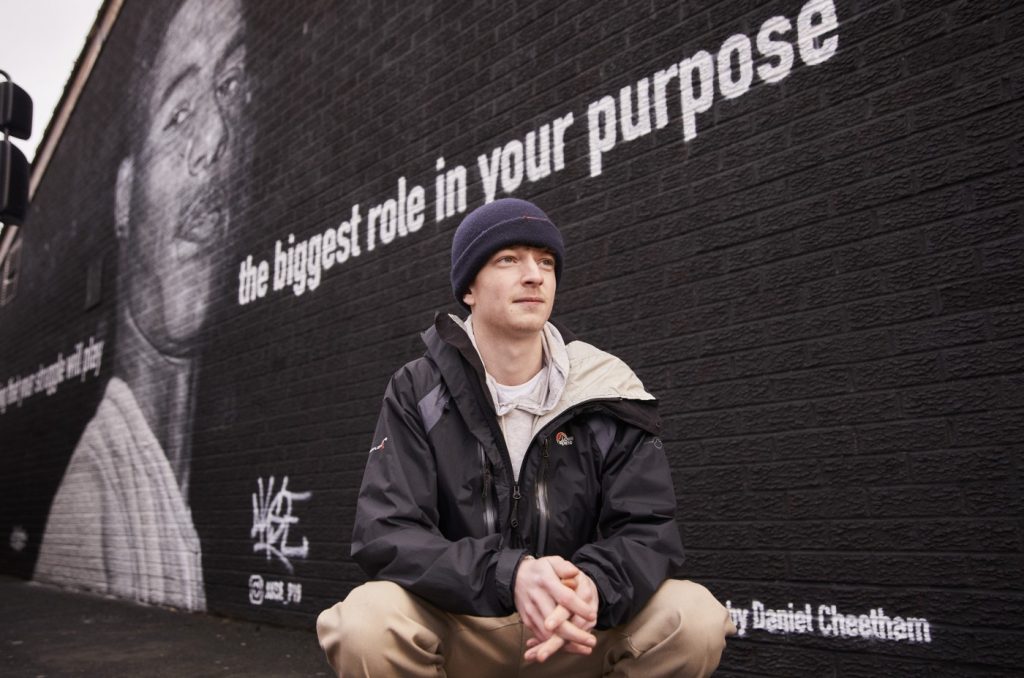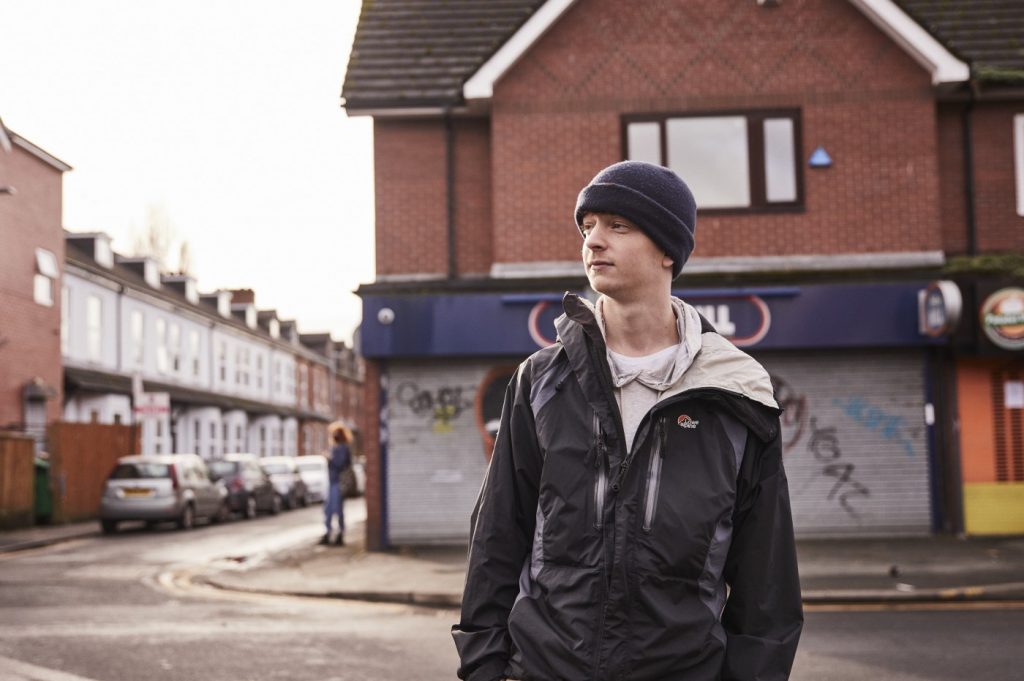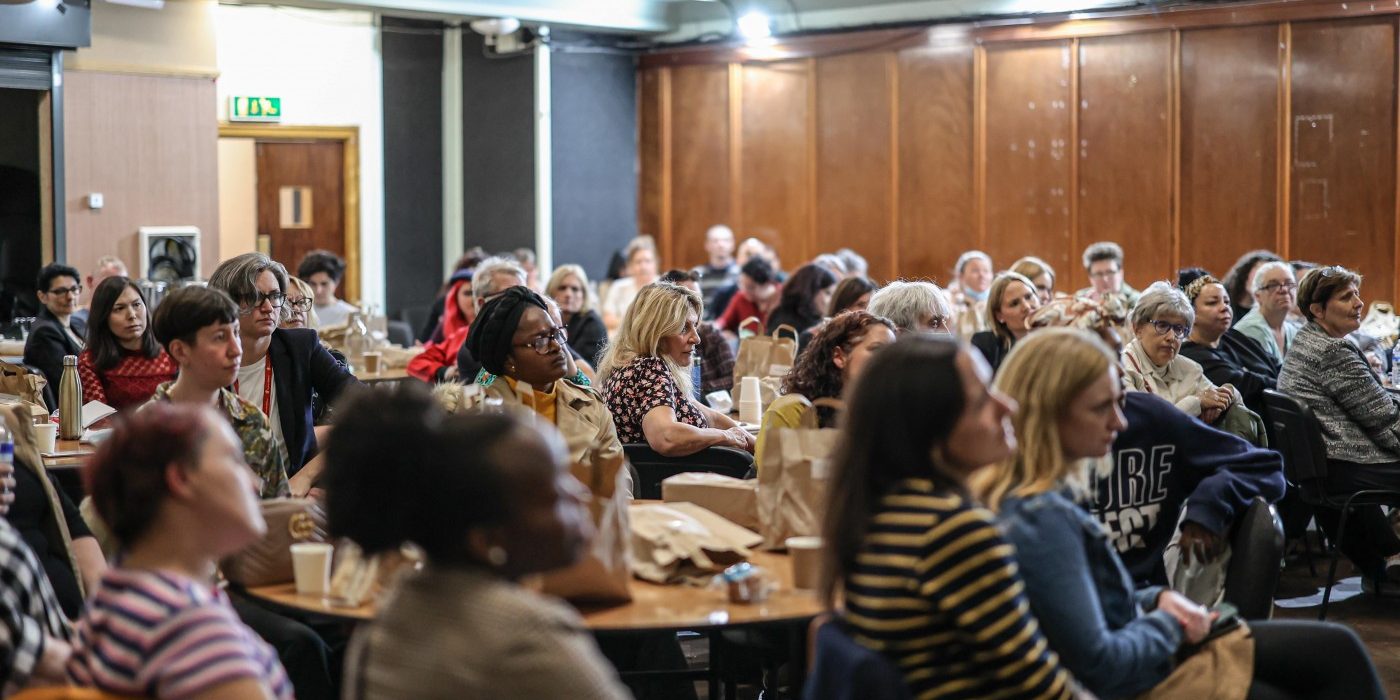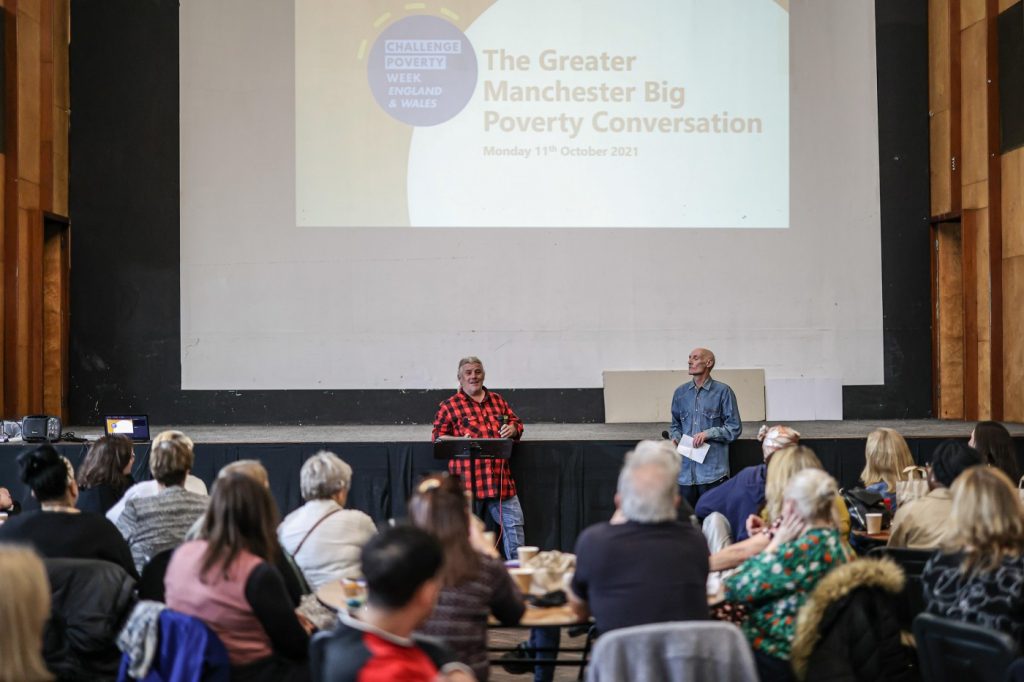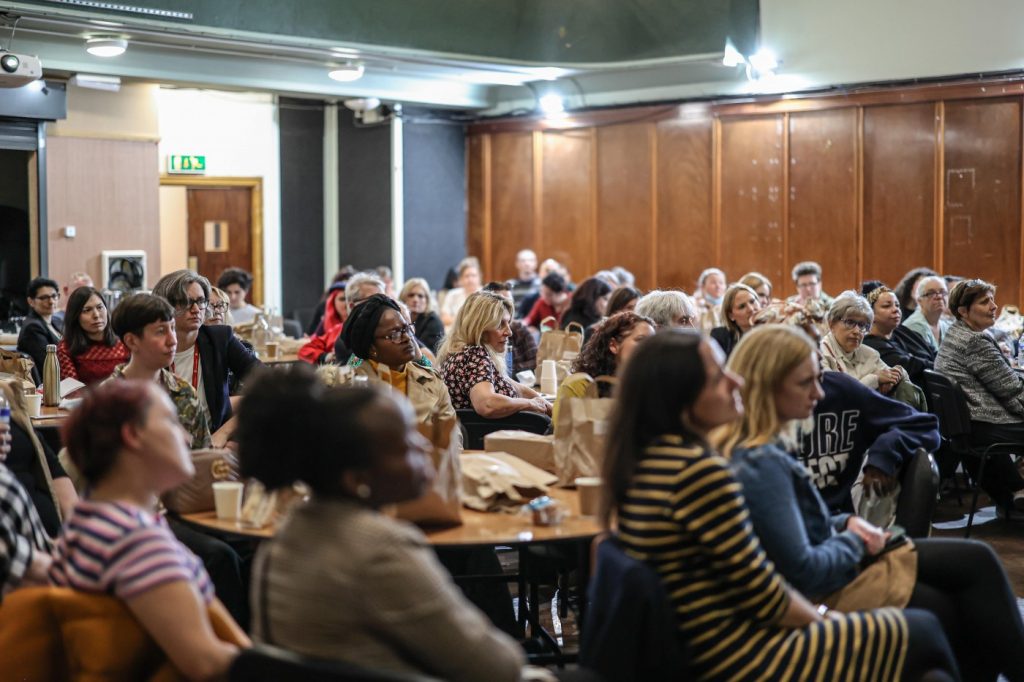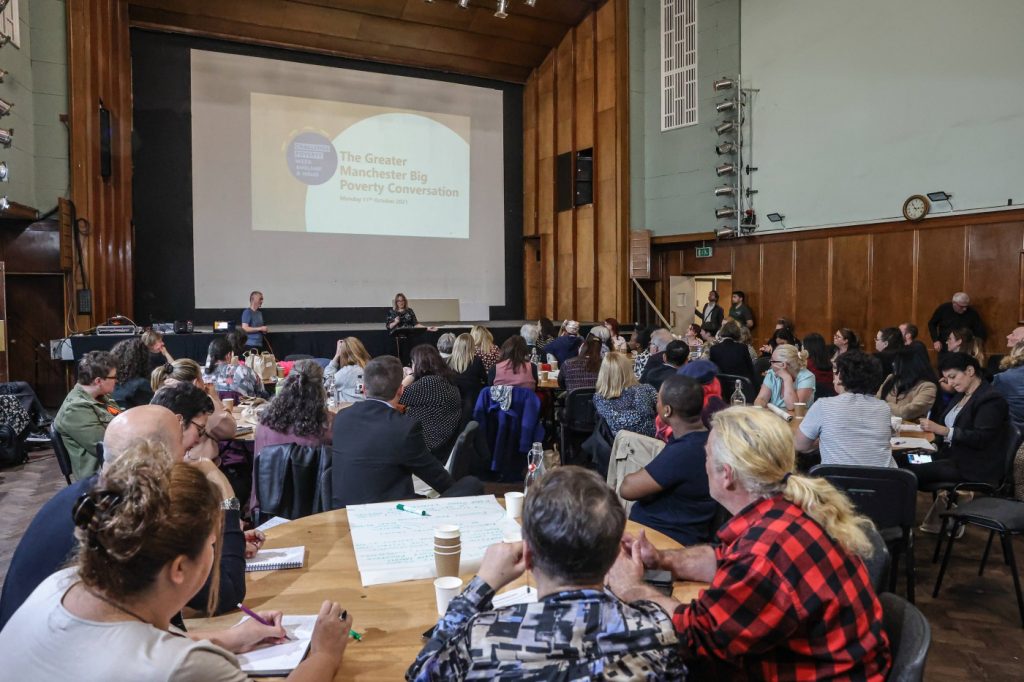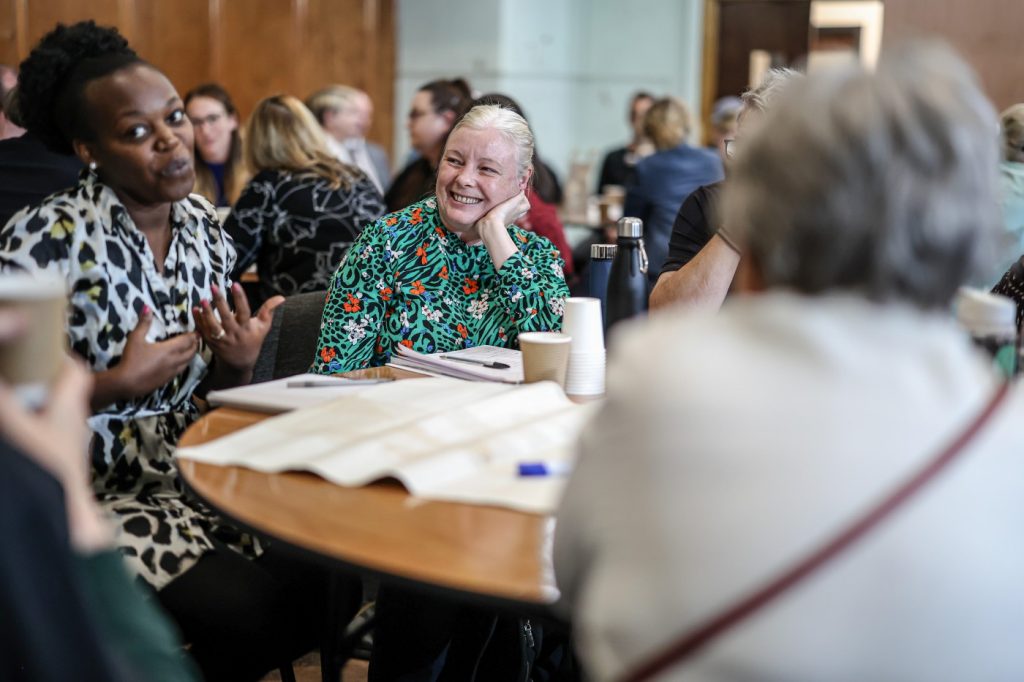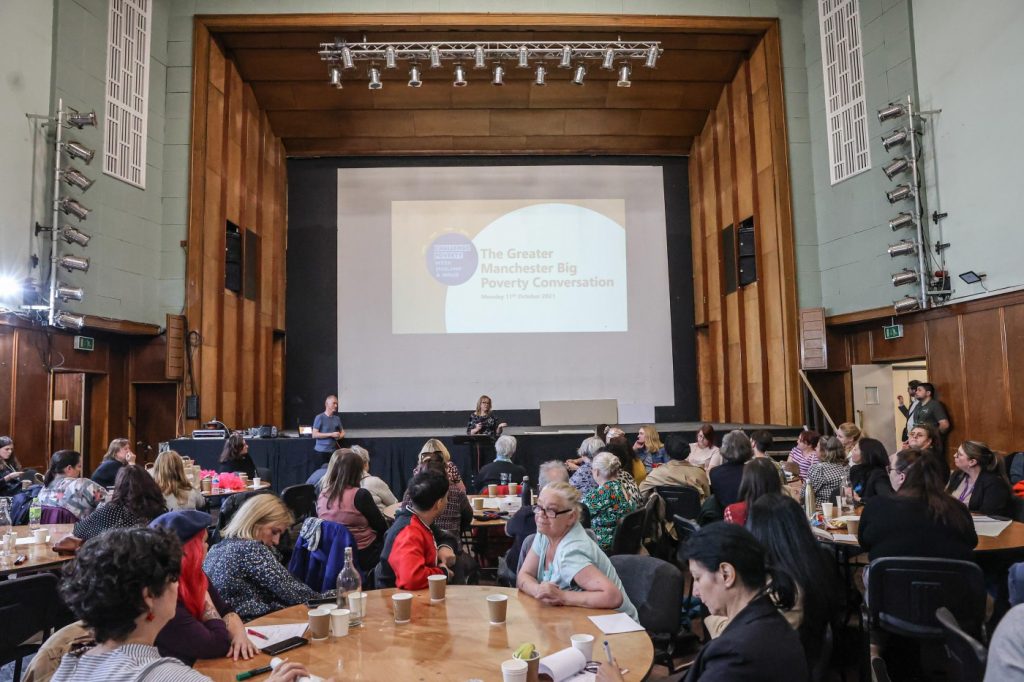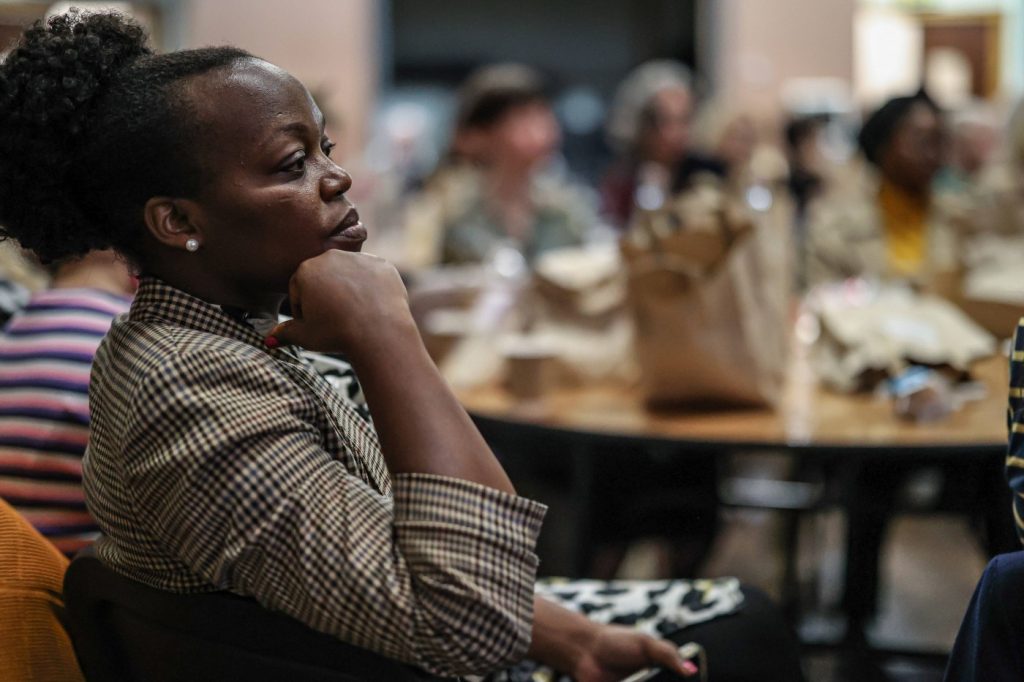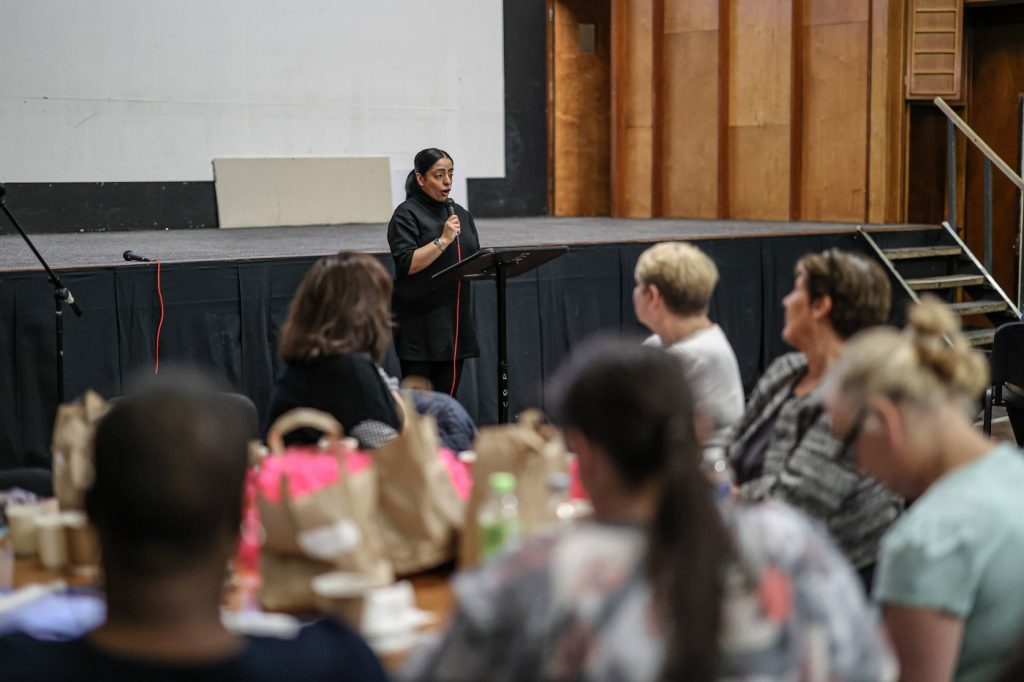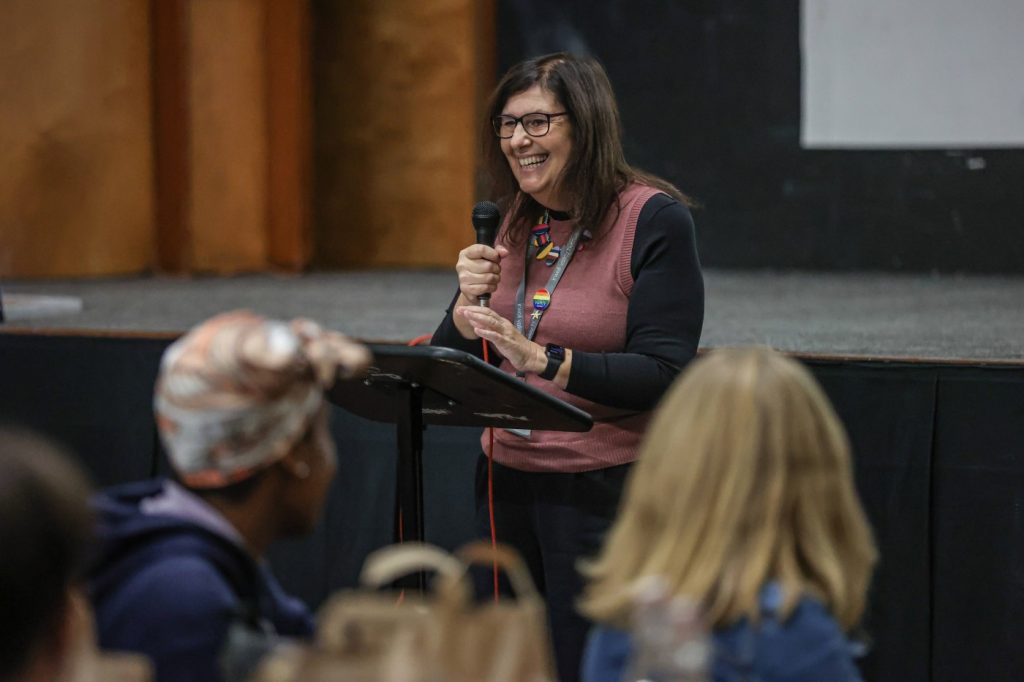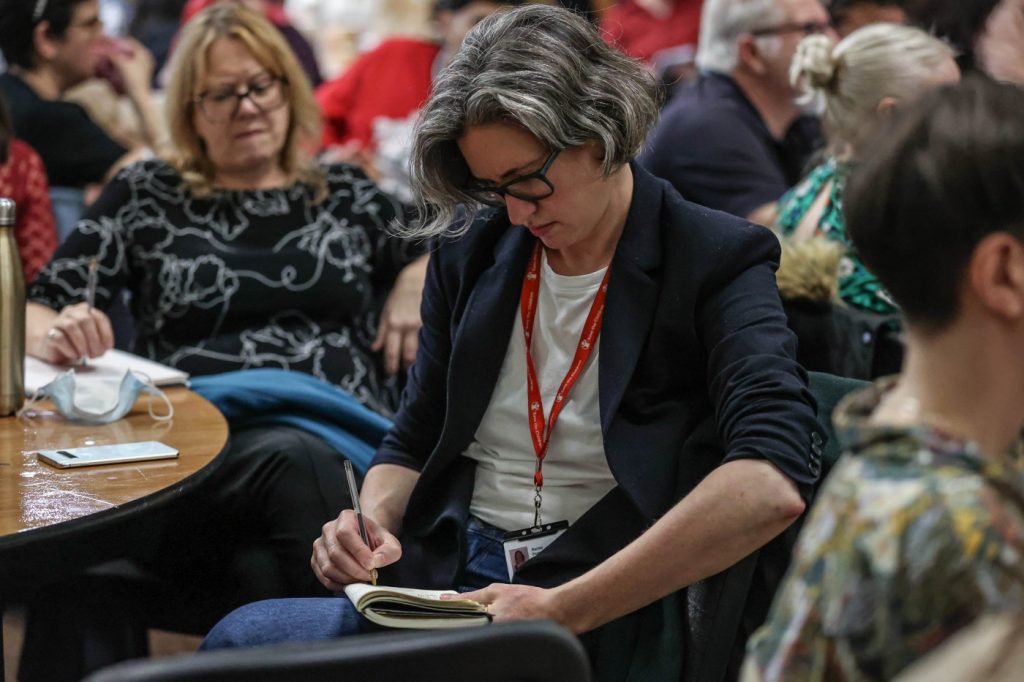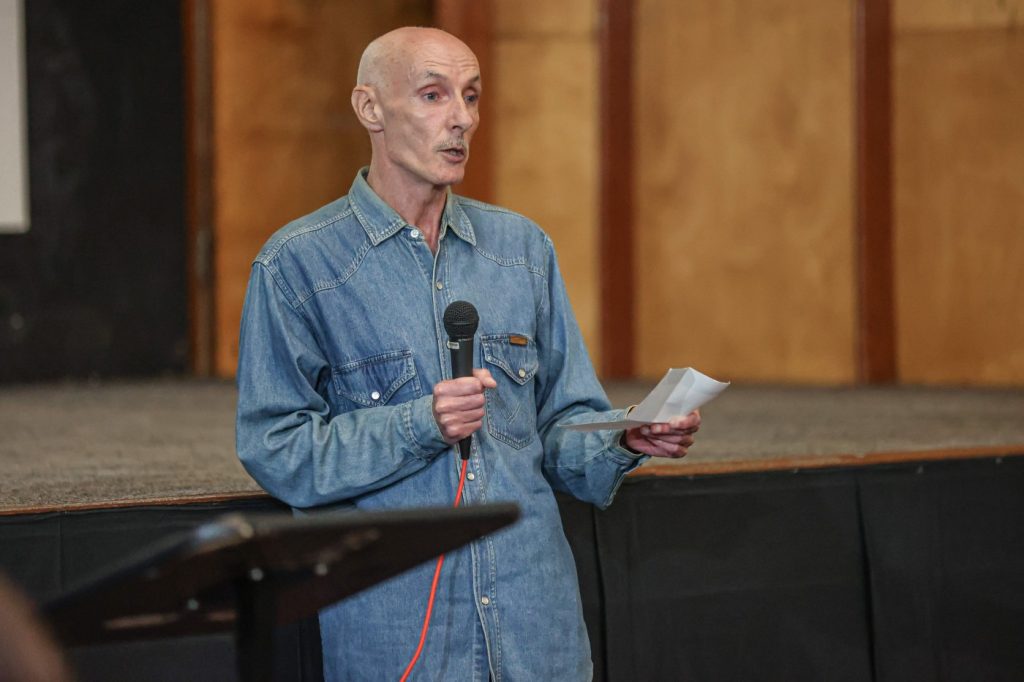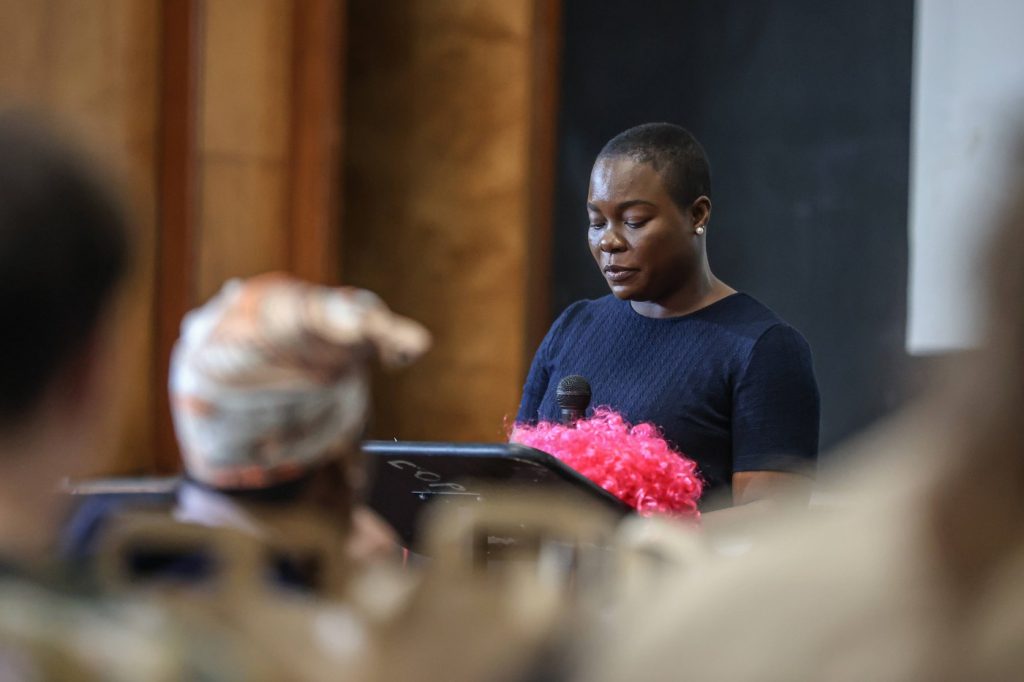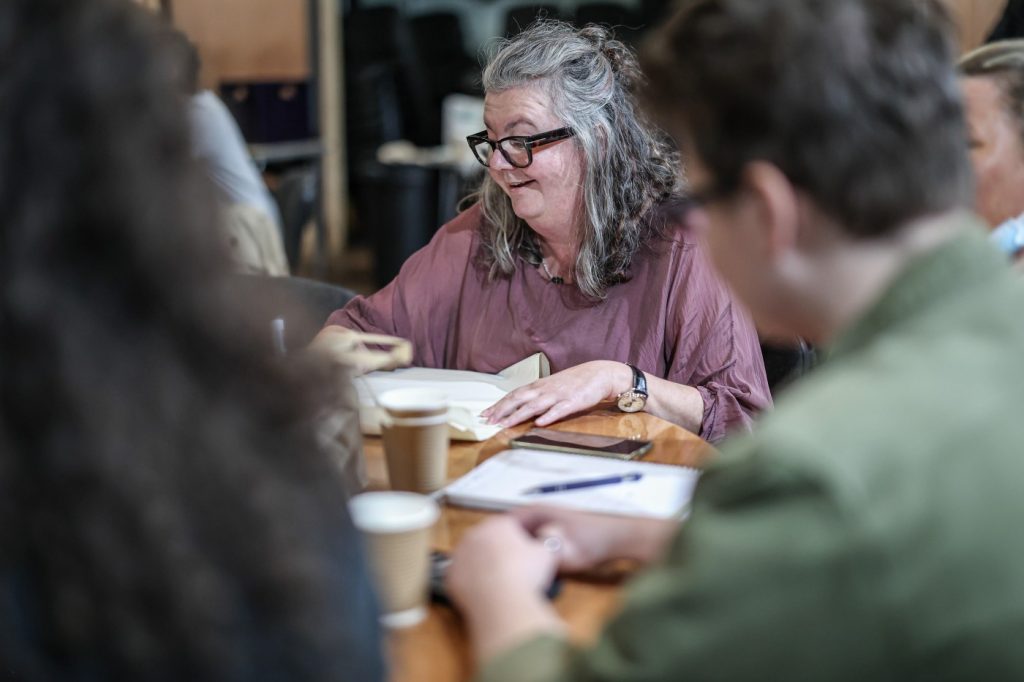Throughout 2022, we are telling the stories from the Dignity, Agency, Power calendar. May’s page features Your Local Pantry, so we caught up with James Henderson, who became network development coordinator for Your Local Pantry at the end of last year.
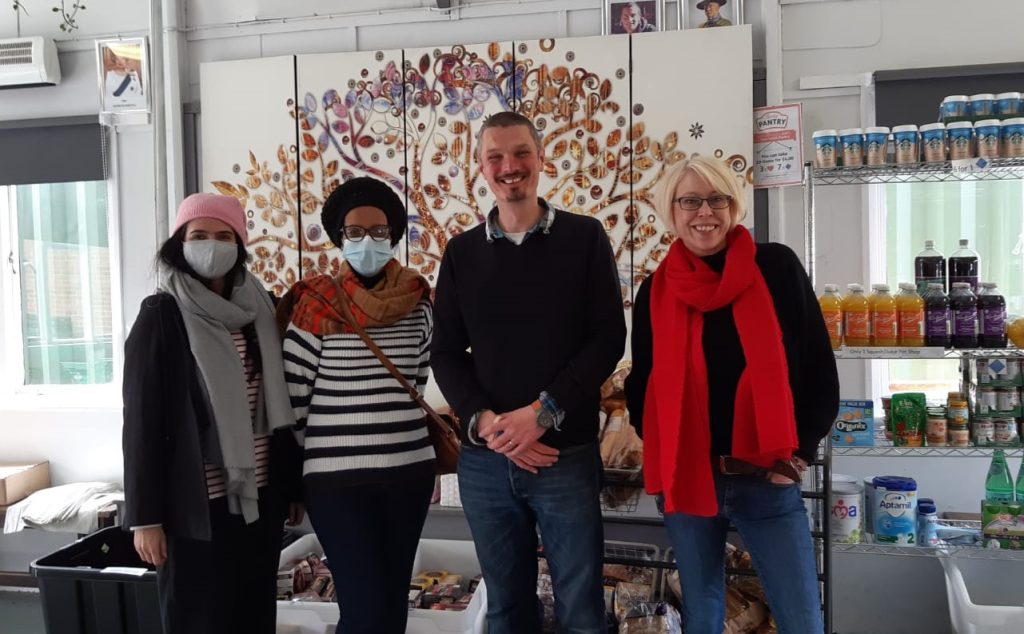
Hi James… Can you start by telling us how the Pantry network is doing?
It’s going really well. We were delighted to recently launch the first Pantry in Northern Ireland, which means we now have Pantries in all four nations of the UK, and we are still getting lots of interest.
We’ve also recently had our second Pantry open in Portsmouth, and other new ones opening in Leicester, Birmingham, Liverpool, Sandwell, St Helen’s, Peterborough, Epsom and Sefton. We are on 68 pantries now, and it’s been really exciting to see the growth and development, and knowing what a difference Pantries are making to communities.
What do you think is driving that growth?
It feels like Pantries are a really current solution to the whole set of circumstances we are seeing just now. People are being squeezed from all sides, particularly with the cost of living. We all want to people and communities to have as much dignity as possible, and they are seeing that the Pantry model works.
Something we are developing, and really keen to further develop, is the idea of the Pantry as a wider community hub, providing what members want beyond just shopping. Can other people and services come in to give the Pantries even more value?
James, you've been in post for almost 6 months now. How are you finding it?
I am really loving it! It’s a really dynamic team to work with, and we work well together, with a nice mix of skills. I really enjoy getting out and visiting Pantries. It’s one thing reading or hearing about things, but to go and meet members and volunteers and coordinators is fantastic.
I love hearing stories from members about the impact Pantries are having on their lives, whether that’s helping them save for something important to them, or easing the difficult choices people are having to make, or meeting new people.
I love seeing the compassion of volunteers and coordinators, and seeing how much they really do care for the members. Pantries are really embedded in communities, and when you go in there is such a buzz, such a nice atmosphere. It’s lovely to see.
People reading this might want to get involved, or support Pantries. What can people do?
There are a few things people can do. If people want to join a Pantry, you can find your nearest one on the website. If there’s not one where you live, and you want to start one, there’s a Q&A on the website too, or you can email us for information.
Pantries are all hosted by local organisations, such as community centres, charities, churches or councils, so you might want to find a local organisation that you think could be a host.
If you want to support the network, the Friends Of Your Local Pantry scheme is a great way to get involved. This enables you to support your nearest pantry and others in the network.
Also, just spreading the word is useful, and if you are a Christian then keep praying for the members, volunteers and coordinators. Half of the Pantries are linked to churches, and I know those
Pantry teams really appreciate people’s prayers. Some members are in very difficult situations and volunteers are increasing hours, and some Pantries have waiting lists because there is so much demand, so all support is appreciated.
Lastly, do follow us on social media. It’s a lovely way to see what different Pantries are doing, and to hear from volunteers and members and coordinators all over the country.

Be part of a movement that’s reclaiming dignity, agency and power

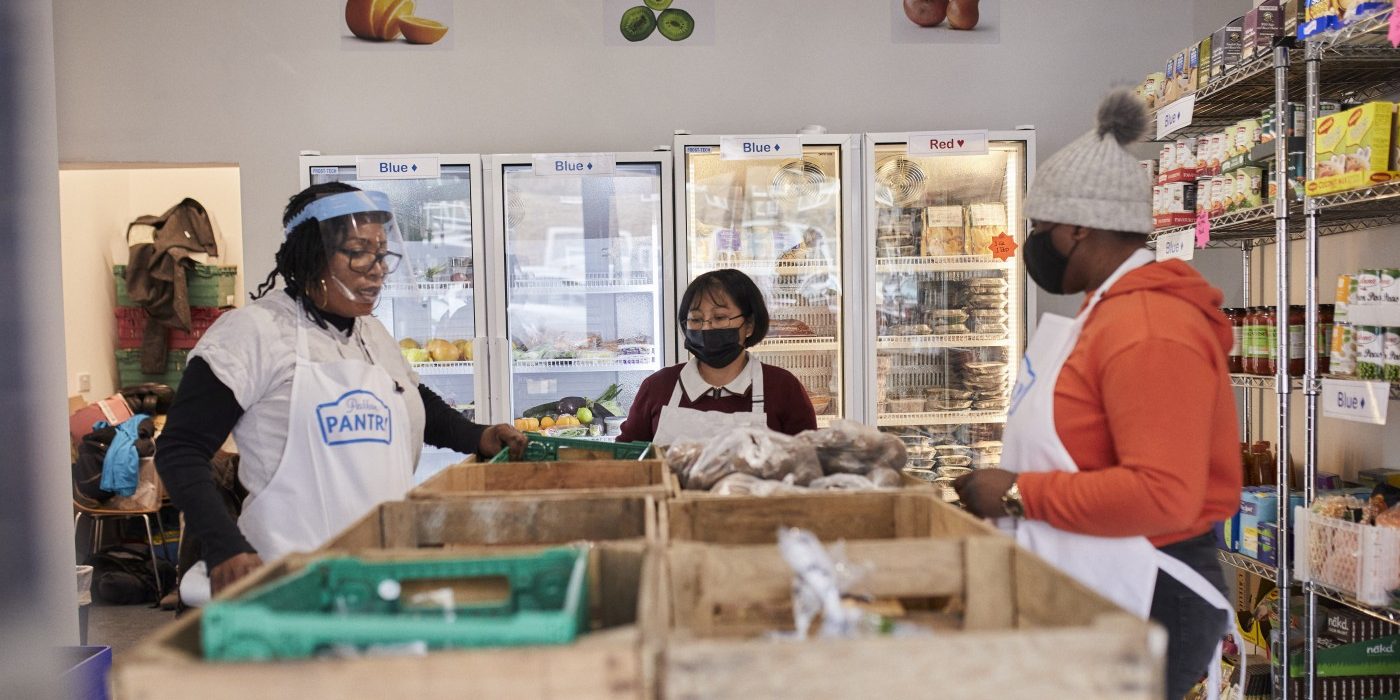
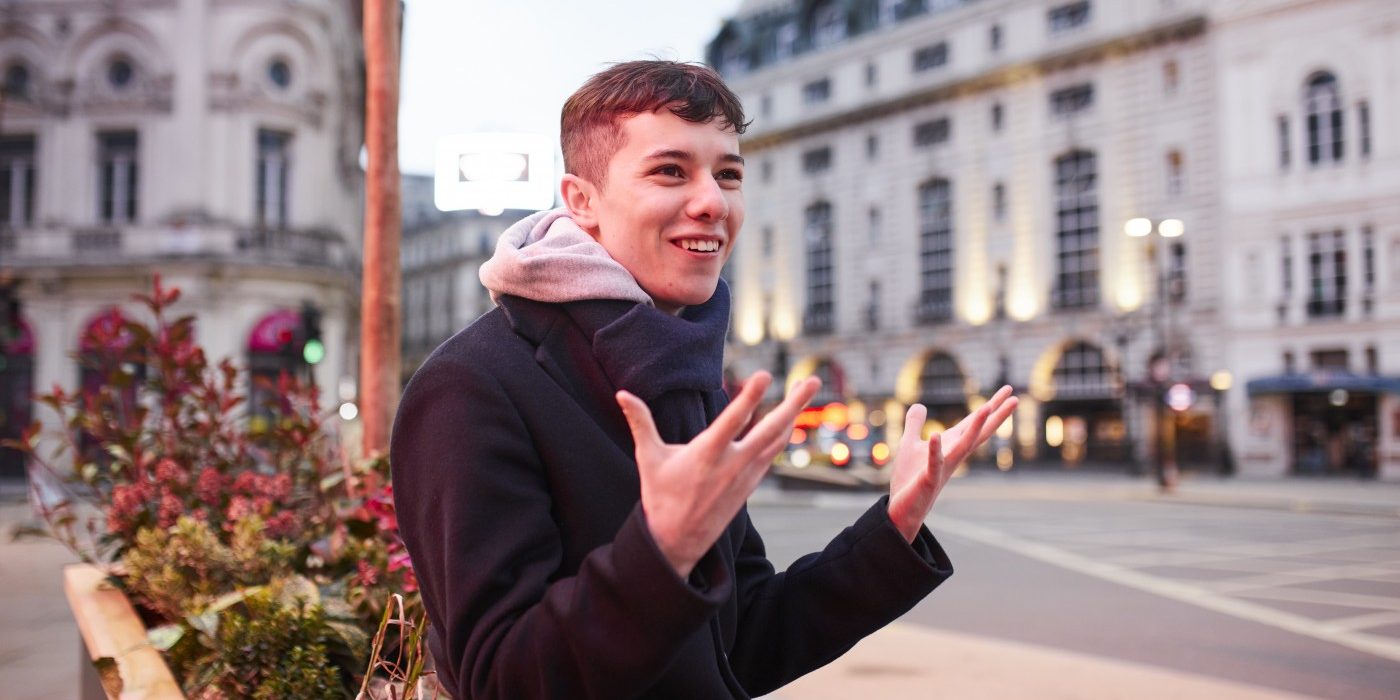

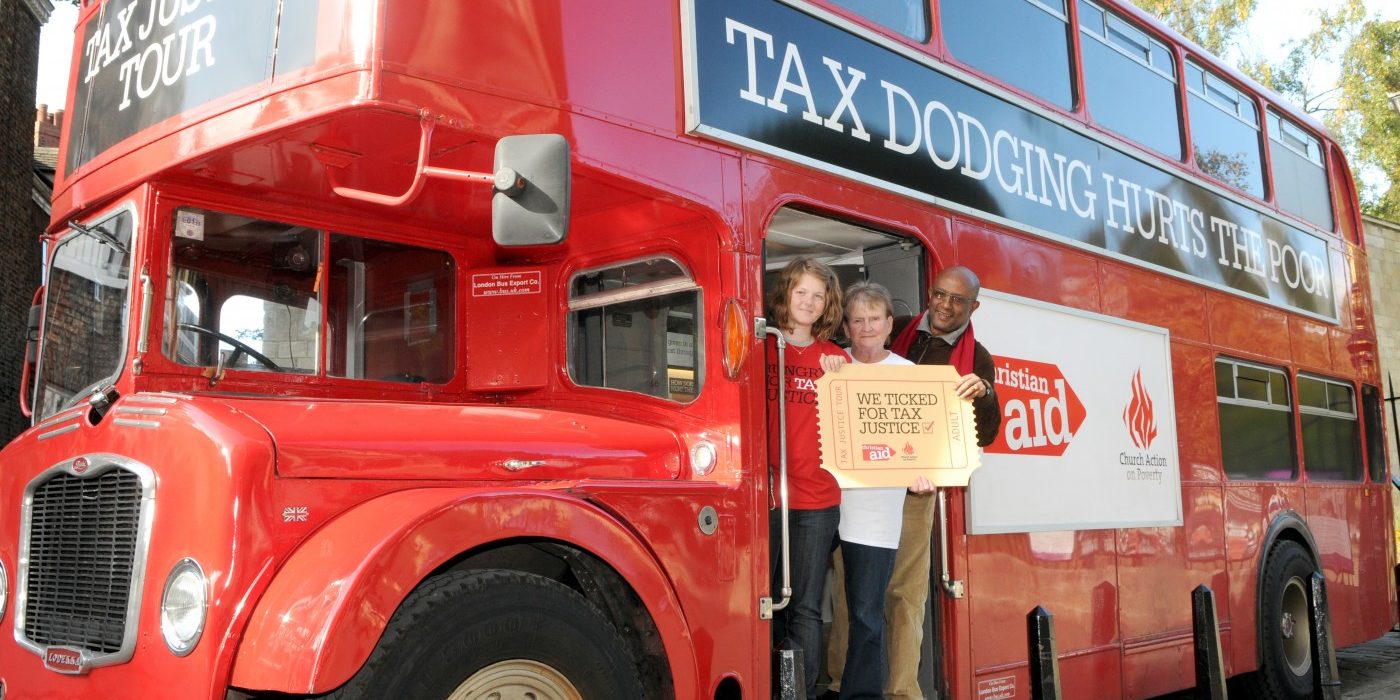
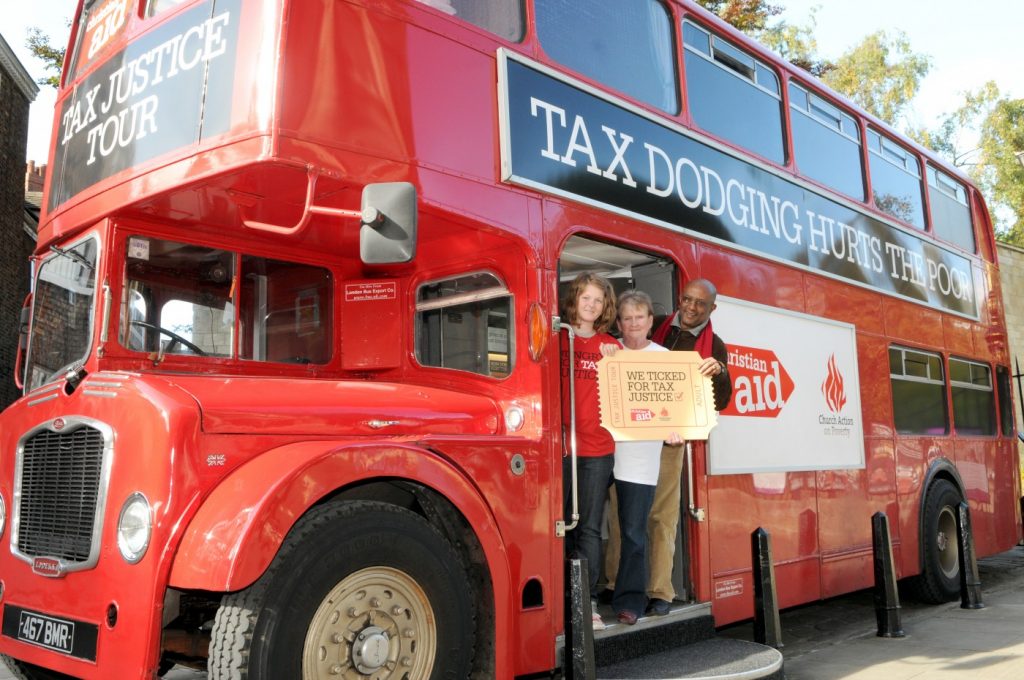
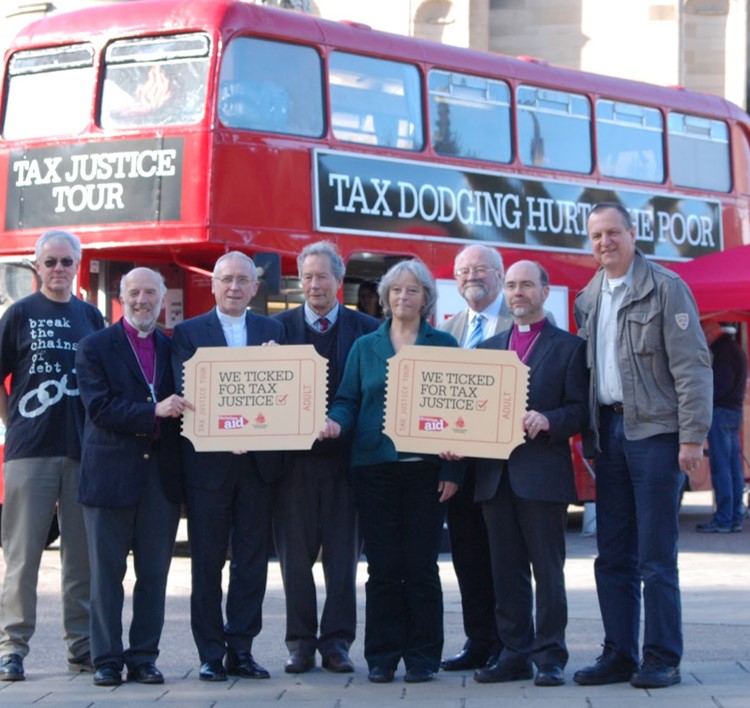
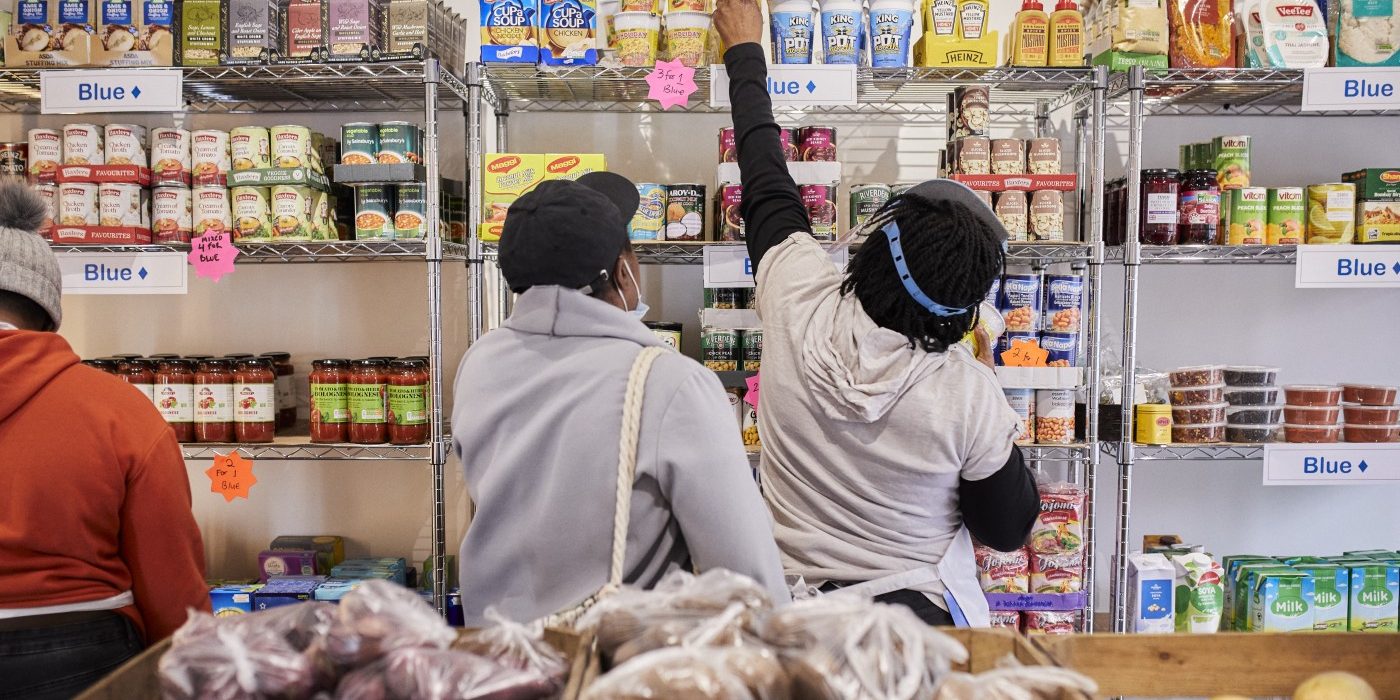
 In 2022, as we enter our 40th anniversary year, our vision remains the same: A UK free from poverty. We remain unrepentant in believing this should be the goal in one of the richest countries on the planet.
In 2022, as we enter our 40th anniversary year, our vision remains the same: A UK free from poverty. We remain unrepentant in believing this should be the goal in one of the richest countries on the planet. 
